National Scam Call and Fraud Trends for 2025
This year, scam calls have continued to disrupt daily life for millions of Americans. In April alone, our phones rang with almost 5 billion robocalls. Source: Robocall Index
Beyond the annoyance, these calls can take a real toll on our well-being.
Research shows that scam victims in the U.S. often suffer severe stress and anxiety, regardless of how much money they lose. One recent study of 150 American debit and credit card fraud victims found the psychological impacts were greater than the financial losses, with victims reporting persistent stress, fear, and emotional harm. Source: Cornell University
While this may feel overwhelming, each unwanted call is a reminder to stay vigilant.
Quick Tips:
- Be cautious with unknown numbers.
- Avoid giving out personal details over the phone.
- Report suspicious calls to the FTC or your state’s consumer protection office.
- If you do fall victim, don’t hesitate to seek help.
Who to contact for help: Many local nonprofits and consumer protection agencies offer support and recovery assistance. Together, we can slow the flood of fraud that targets households every day.
State-by-State Scam Call Info
Below we will list scam call and fraud information for each state in the United States. Note: The section is being updated regularly for each state.
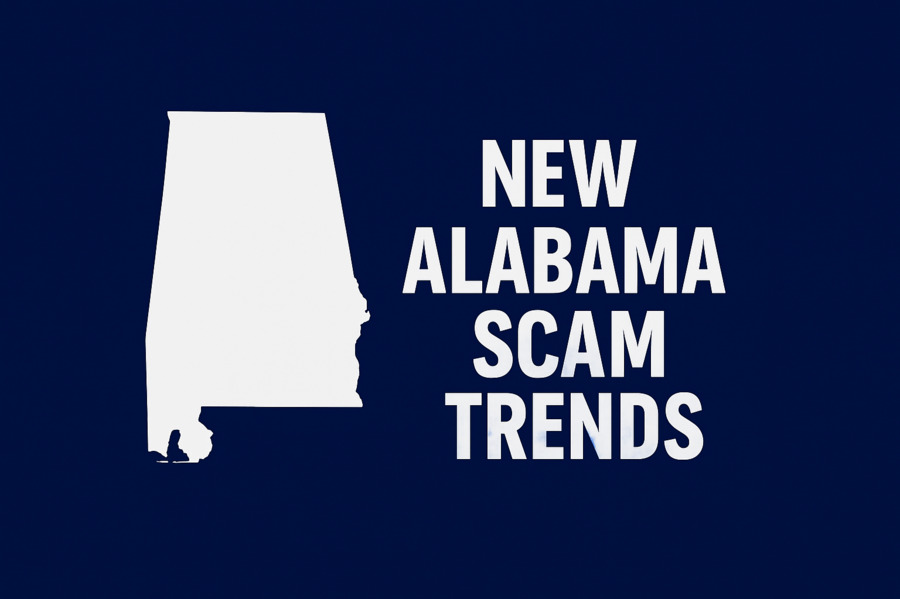
Alabama's Fraud Reality in 2024
Alabama ranked 14th in the nation for fraud and other reports in 2024. Residents filed over 70,000 complaints with the FTC’s Consumer Sentinel Network, with total reported losses of over $104 million and a median loss of $400 per incident. Ranking 14th in the nation has taken a huge hit on the economy of Alabama, showing how important it is to stay vigilant to avoid further decline. Source: FTC Consumer Sentinel Network Data Book 2024
Alabama’s Consumer Protection in Action
In September 2024, Attorney General Steve Marshall revealed a $60 million settlement with Terminix, a pest and termite control company, settling the allegations of Terminix engaging in illegal business practices that targeted Alabama residents. The AGO claimed that Terminix misled consumers with deceptive advertising and improper contracts, causing many of its clients to pay for misleading services. The settlement includes several steps, such as refunds to affected consumers and reforms to Terminix’s business practices in Alabama. Source: Alabama Attorney General
Fraud in Alabama hits households hard, draining savings and upending lives. Residents can protect themselves by staying vigilant, questioning offers that seem too good to be true, and using the state’s consumer protection resources before problems escalate and resident's losses mount.
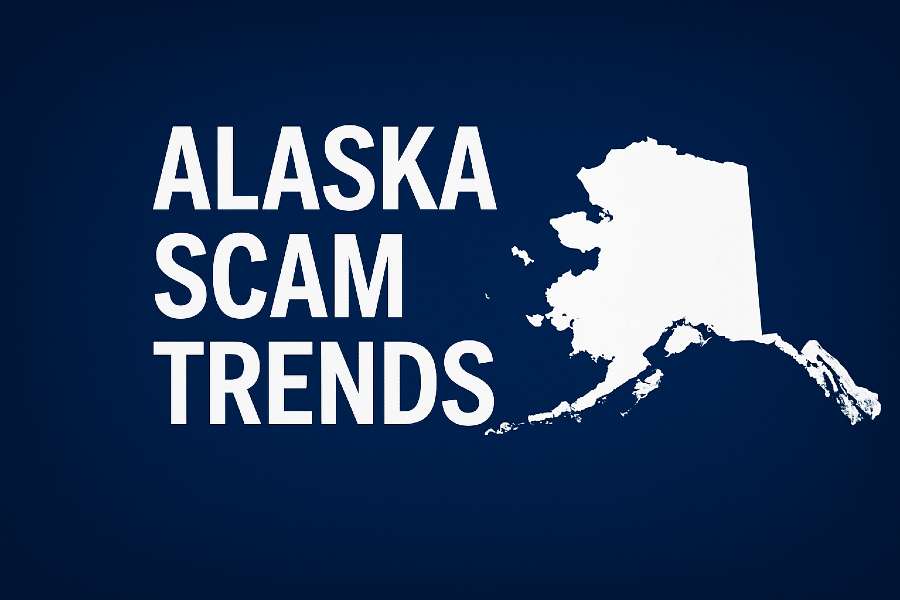
Alaska's Fraud Reality in 2024
Scams in Alaska may look different from those in other states, but they can still cause serious damage. In 2024, residents filed 7,279 fraud and related reports, losing nearly $27 million in total. On average, losses were about $525 each victim. Alaska’s population is small, the financial impact hits much harder. Alaska ranks 31st in fraud reports, with scammers knowing how to take full advantage of the state’s isolation and limited consumer options. Source: Federal Trade Commission
Alaska’s Consumer Protection in Action
Alaska may rank lower than many states in the total number of fraud reports, but its government has built protections that reflect its unique challenges. The Consumer Protection Unit at the Alaska Department of Law zeroes in on scams that hit remote communities hard. Instead of just tossing out warnings, the unit helps residents and businesses settle disputes before things escalate. When scams cross that line, Alaska uses enforcement actions to protect entire communities spread across the state’s vast geography. Source: Alaska Department of Law
Fraud may not grab headlines in Alaska the way it does in larger states, but the state’s higher per-person losses reveal how vulnerable residents can be. Scammers are adapting their tactics, and Alaska’s remote communities remain prime targets, making strong prevention and consumer protection efforts all the more vital.
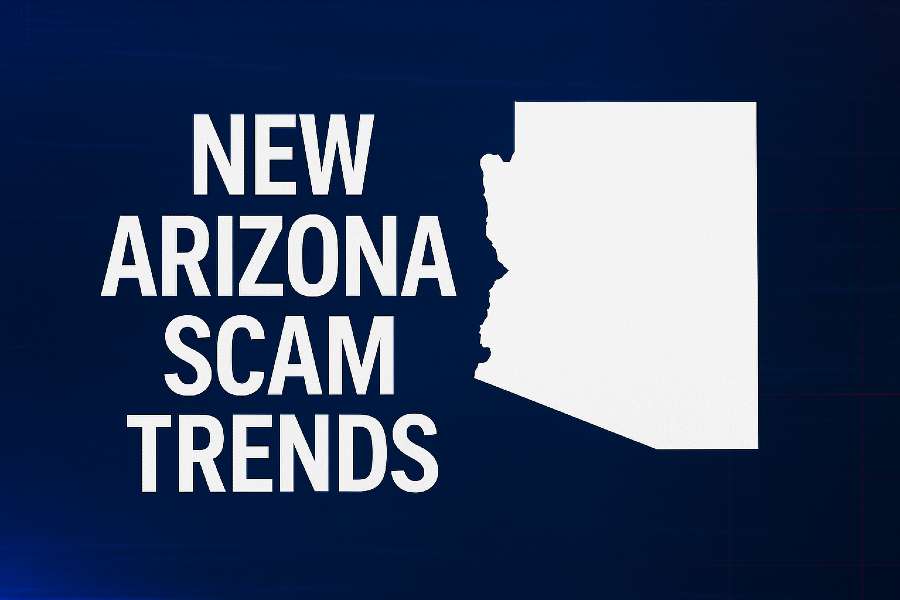
Arizona's Fraud Reality in 2024
Arizonans are all too familiar with the costly consequences of scam calls and fraud. Last year, people in the state lost $336 million to various types of fraud schemes, with identity theft being the primary culprit. On average, each victim lost about $600, but many lost far more. Interestingly, Arizona ranked 11th in the nation for fraud reports in 2024, putting the state above average compared to most others. Source: Federal Trade Commission
Arizona’s Consumer Protection in Action: Arizona's Consumer Protection Division is a trusted source for Arizonans who want to stay up to date on the latest scams. They share alerts, practical tips, and clear ways to report fraud when it happens. But they don't just stop at information. The division also looks into fraud cases directly to hold scammers accountable and help prevent more people from being targeted. Source: Arizona Attorney General’s Office
The hard part is that many people don't take advantage of the government assistance available to help victims of fraud, missing out on resources that could make a real difference.
Fraud may hit Arizona harder than many other states, and the losses are a reminder of just how determined scammers can be. Every year, they find new ways to reach people and drain hard-earned money from families and communities.
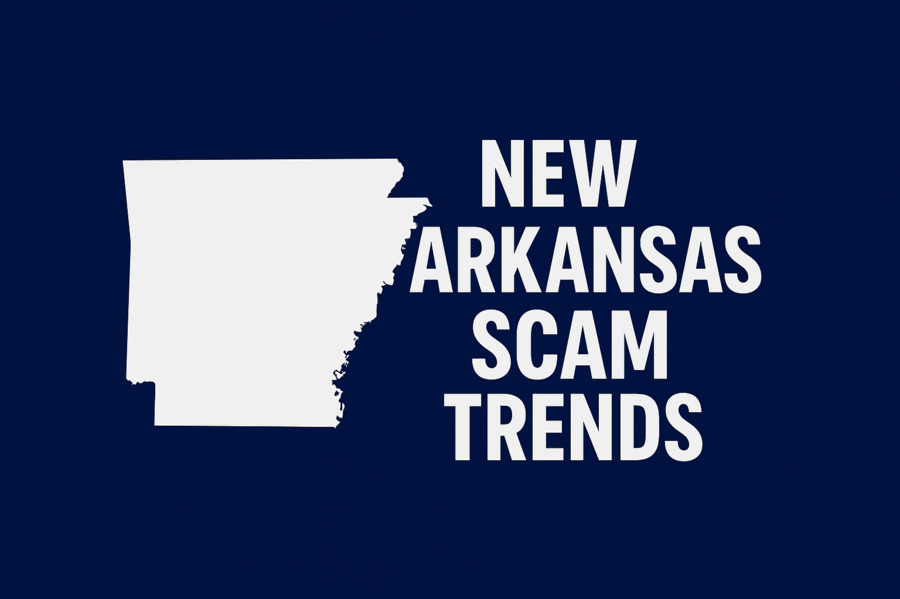
Arkansas's Fraud Reality in 2024
Arkansas ranked 34th in the nation for fraud and related reports in 2024 (among all states). Arkansas residents filed almost 30,000 complaints with the FTC's Consumer Sentinel Network that year, reporting over $52 million in losses and a median loss of $375 per incident. Source: Federal Trade Commission
Arkansas’s Consumer Protection in Action
This summer, Attorney General Tim Griffin filed lawsuits against two Arkansas companies, Boltz Steel Furniture and Community Builders, for violating the Arkansas Deceptive Trade Practices Act after failing to deliver goods consumers had ordered. This kind of "pay-and-don't-receive" conduct is a recurring target in state consumer protection work, and cases like the ones above reflect an active attempt by Arkansas's AG to shut down unfair business practices. Source: Arkansas Agriculture Department
When companies make promises about products and then disappear, or when services are only partially delivered, it harms consumers. Most of the people affected by scams are regular people, with limited funds that can’t handle the financial blow of even a small scam. That's why cases such as the Boltz Steel and Community Builders lawsuit are important. They remind us that accountability is still fought for.
Arkansas consumers should keep their guard up and never hesitate to report suspected fraud to the Attorney General's office.
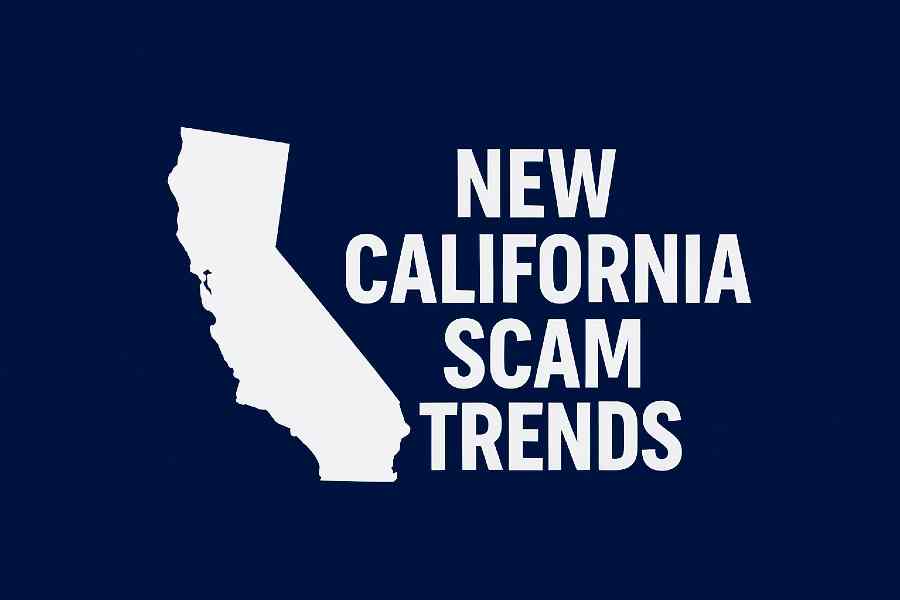
California's Fraud Reality in 2024
In 2024, California ranked 17th in the nation for fraud and other reports. Californians filed more than 500,000 complaints with the Federal Trade Commission, the total loss for all these complaints tragically added up to almost $1.7 billion in losses. The typical loss came in at $542, with over 20% of the cases being categorized as identity theft. The sheer size of the problem shows how quickly fraud can spread in the country’s largest state. Source: FTC Consumer Sentinel Network Data Book 2024
California’s Consumer Protection in Action
In Irvin, a recent California case highlighted how personal identity schemes can get. The case involved a couple who stole the identities of 21 patients and filed fraudulent medical insurance claims, including COVID tests that never were administered. The California Department of Insurance stepped in and brought with them felony charges for the couple. Source: California Department of Insurance
Fraud in California may look bigger than anywhere else, but the damage is personal in every case. With so many people and so much money moving through the state, scams thrive on sheer volume. What sets California apart is how often those schemes land close to home, forcing residents to stay alert even in the most ordinary parts of life.
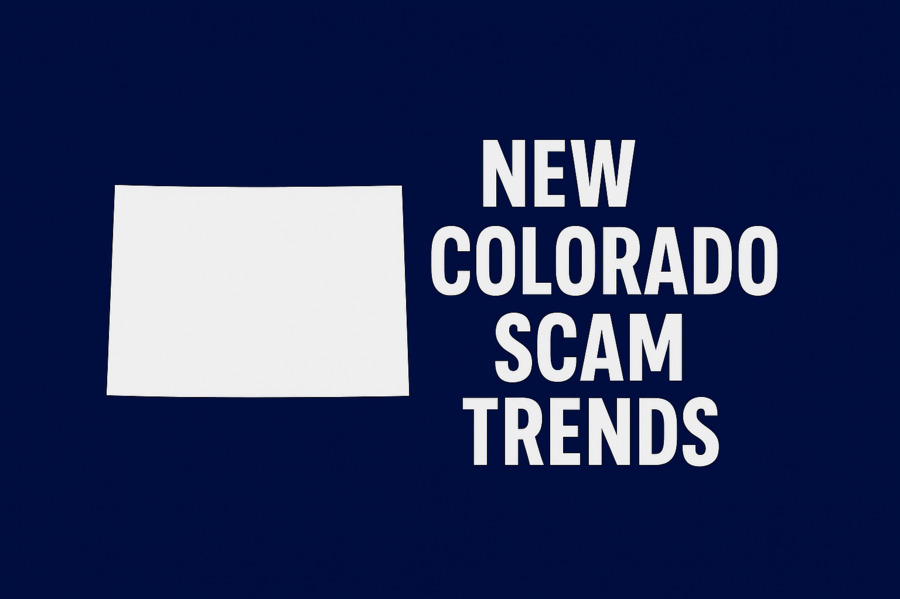
Colorado's Fraud Reality in 2024
In April 2025, Colorado Attorney General Phil Weiser took aim at a company that was blurring the line between marketing and manipulation. Compliance Services Colorado, had been sending out mailers that appeared to be official state notices and included deadlines and fees. They did not include the necessary disclaimer in their mailers required by law. Under the settlement, the company must refund $95,631 to those affected and is prohibited from sending misleading notices going forward. Source: FTC Consumer Sentinel Network Data Book 2024
Colorado’s Consumer Protection in Action
In April 2025, Colorado Attorney General Phil Weiser took aim at a company that was blurring the line between marketing and manipulation. Compliance Services Colorado had been sending out mailers that appeared to be official state notices and included deadlines and fees. Under the settlement, the company must refund $95,631 to those affected and is prohibited from sending misleading notices going forward. Source: Colorado Attorney General’s Office
Fraud in Colorado may not always make the news, but its impact is felt by families and businesses across the state. Knowing how scams operate, checking sources before paying a fee or signing a form. Those small steps can help keep hard-earned money where it belongs: in the hands, pockets, and wallets of Colorado residents, not con artists.
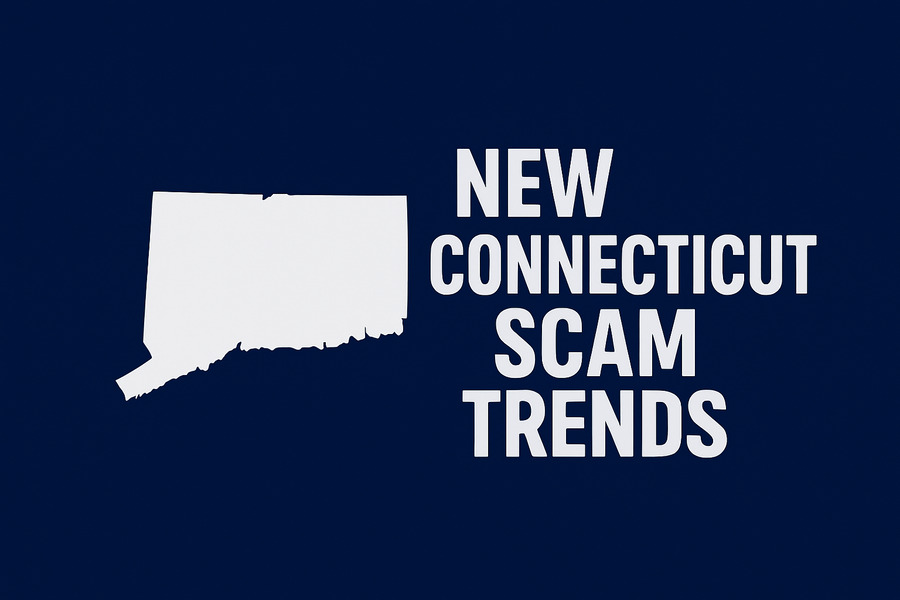
Connecticut's Fraud Reality in 2024
Connecticut ranked 20th in the nation for fraud and other reports per capita in 2024. Residents filed almost 44,000 fraud and related reports with the Federal Trade Commission that year. Reported losses added up to over $90 million, with a median loss of $432, and credit bureaus and information furnishers topped the list of complaints at 19 percent, edging out imposter scams and other categories. Source: FTC Consumer Sentinel Network Data Book 2024
Connecticut’s Consumer Protection in Action
One case that stood out in 2024 targeted businesses rather than individual consumers. A company called CT UCC Statement Service sent letters that looked like official government notices, demanding $90 for a Uniform Commercial Code report. The Connecticut Attorney General warned that the notices were misleading and that UCC records are free through the Secretary of State’s website. Source: Office of the Attorney General William Tong
For small businesses trying to keep their doors open, even a small financial hit can be costly.
The bigger point is clear: double-checking notices and investigating anything suspicious before paying keeps money in local hands and makes it harder for scams like these to survive.
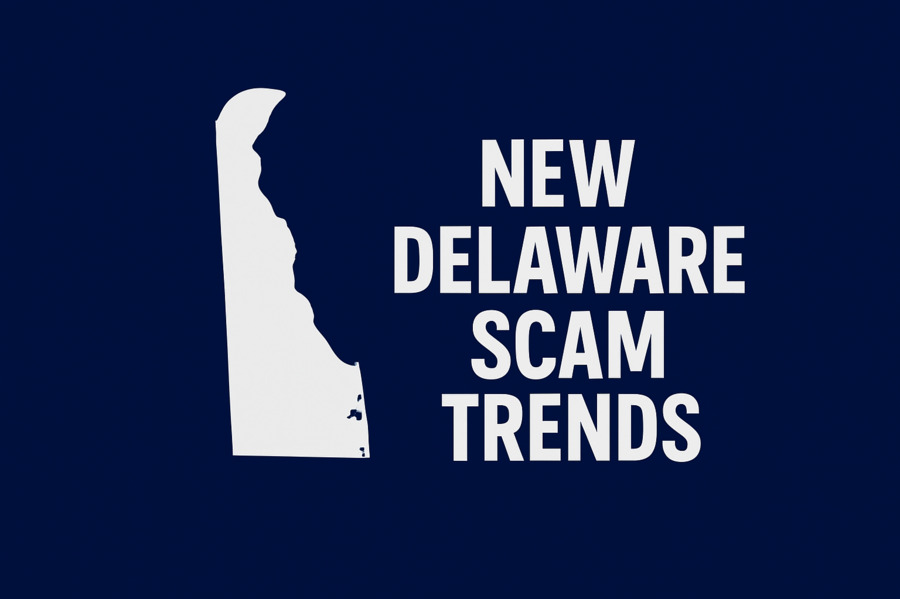
Delaware's Fraud Reality in 2024
Delaware ranked 3rd in the nation for fraud and other reports in 2024. That year, Delawareans filed 18,870 fraud and other reports with the FTC's Consumer Sentinel Network, reporting $34.3 million in total fraud losses and a median loss of $466 per incident. Delaware scored high on fraud prevention, while still showing that fraud is prevalent, even in states where the residents are less prone to falling victim to fraud. Source:
Federal Trade Commission
Delaware’s Consumer Protection in Action
In May 2024, Delaware Attorney General Kathy Jennings united with 49 other jurisdictions in a multimillion settlement (just over $10 million) with several wireless carriers to resolve claims that certain advertising and billing practices misled customers about fees and promised credits. The agreement, officials say, was meant to compensate affected customers and rein in the kind of billing tactics that quietly pad bills and frustrate subscribers. Source: Delaware.gov
Delaware has strong public awareness and an aggressive consumer-protection apparatus. That combination helps stop scams earlier and return money to victims.
If you live in Delaware: bookmark the AG's scam page, sign up for alerts, and call the complaint line the moment something feels off. The sooner reports come in, the faster state investigators can spot patterns and stop the next wave.
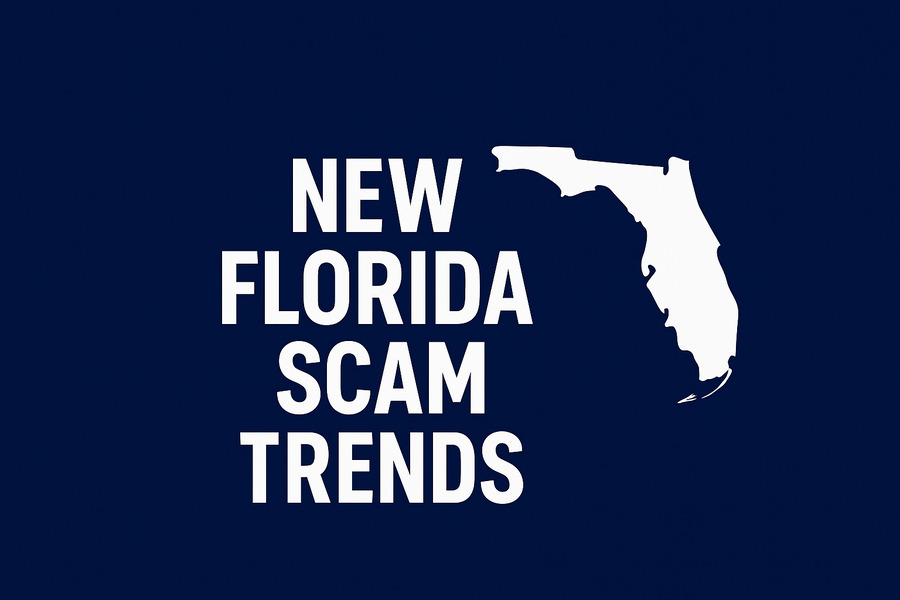
Florida's Fraud Reality in 2024
In 2024, Florida topped the nation in fraud, taking the number one spot in the Federal Trade Commission’s annual rankings. Residents filed more than 474,000 complaints, and losses added up to more than $866 million. While the median loss was only $520, many people were hit far harder. The scale of the problem makes clear that fraud is not just an inconvenience in Florida—it’s a costly, statewide concern. Source: FTC Consumer Sentinel Network Data Book 2024
Florida’s Consumer Protection in Action
The Florida Attorney General’s Office leads the fight against fraud with programs designed to educate and protect consumers. Its Fraud Hotline, 1-866-966-7226, also known as 1-866-9NO-SCAM, gives residents a direct way to report scams and get help. The office also produces regular consumer alerts and publishes “Scams at a Glance,” short guides that highlight warning signs of common schemes. Source: Florida Attorney General – Consumer Protection
Fraud in Florida is not static, and scammers continue to change their approach as new technologies and communication methods open the door to more victims. With close to a billion dollars in documented losses last year, and likely much more that went unreported, the problem shows no sign of slowing down.
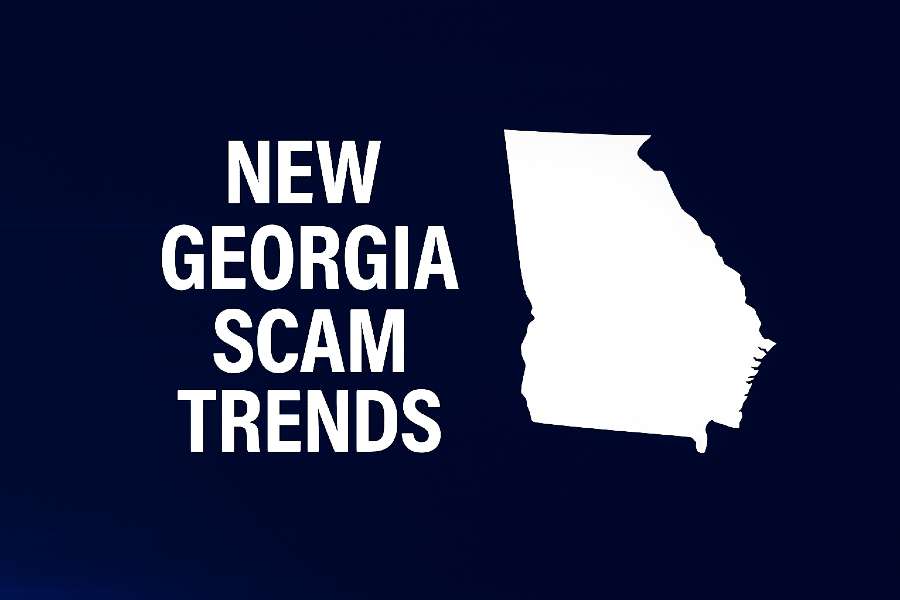
Georgia’s Fraud Reality in 2024
Fraud is hitting Georgia hard. Last year, residents filed more than 228,000 fraud and other complaints with the Federal Trade Commission, reporting losses that topped $291 million. The typical loss was about $450, and Georgia ranked second in the nation for both overall complaints and identity theft. Source: Federal Trade Commission
Georgia’s Consumer Protection in Action
State officials aren’t ignoring the problem. The Georgia Attorney General’s Consumer Protection Division has been busy investigating deceptive businesses, warning the public about new scams, and sharing tips that Georgia citizens can use to protect themselves from becoming a victim of fraud. The division has gone after fake debt collectors and warned residents about imposter scams. Source: Georgia Attorney General
Important phone numbers:
- Consumer Complaints: (404) 651-8600
- Toll-free in Georgia: (800) 869-1123
- Other Issues: (404) 458-3800
Georgia’s position as a major business and transportation hub makes it an easy target for scammers, and the problem won’t disappear overnight. Still, stronger enforcement, public awareness, and easy-to-access resources are giving residents better ways to fight back. With
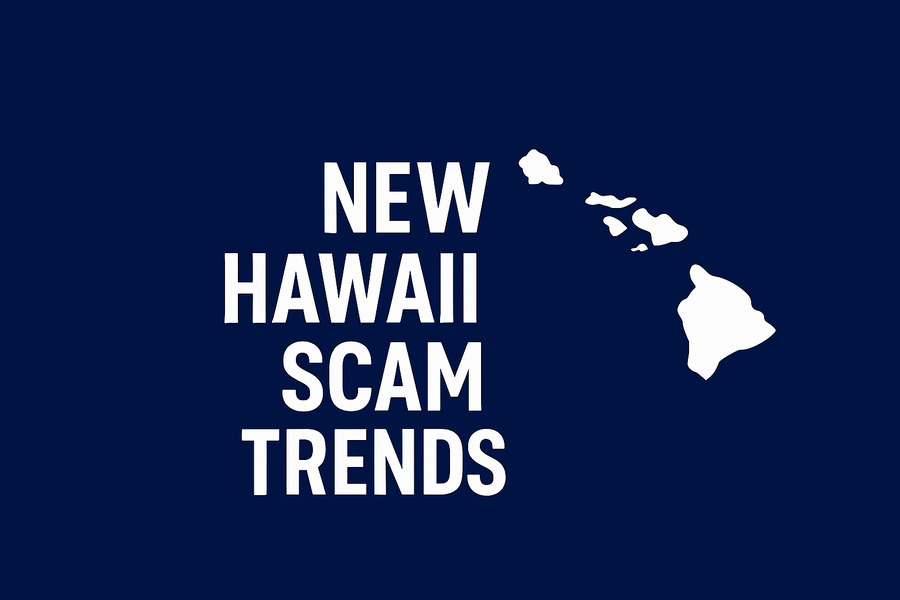
Hawaii’s Fraud Reality in 2024
Compared to much of the country, Hawaii’s 2024 fraud picture shows sharp losses, but still ranks slightly better than average at 33rd out of 50 states. Residents filed over 14,000 fraud and related reports with the Federal Trade Commission, and those reports totaled over $61 million in reported losses, with the median loss per reported scam at $600. While many cases involved smaller amounts, families in Hawaii are already coping with the islands’ high cost of living. These scams often meant a serious financial blow. Source: Federal Trade Commission
Hawaii’s Consumer Protection in Action
The Office of Consumer Protection (OCP) at the Department of Commerce & Consumer Affairs helps Hawaii consumers who’ve been misled or cheated. The department takes complaints about unfair business practices. They also believe that informed consumers are the strongest defense against fraud and deception. That’s why the office organizes, promotes, and delivers consumer education programs across Hawaii.
Source:
State of Hawaii
Scammers often leverage what makes the islands distinct, such as steady tourism, distributed island communities, and high living costs, but those same ties help Hawaii fight back. For island residents, talking about scams and reporting suspicious activity is a practical way to protect the Hawaiian residents and the visitor economy, and the aloha that binds the islands together.
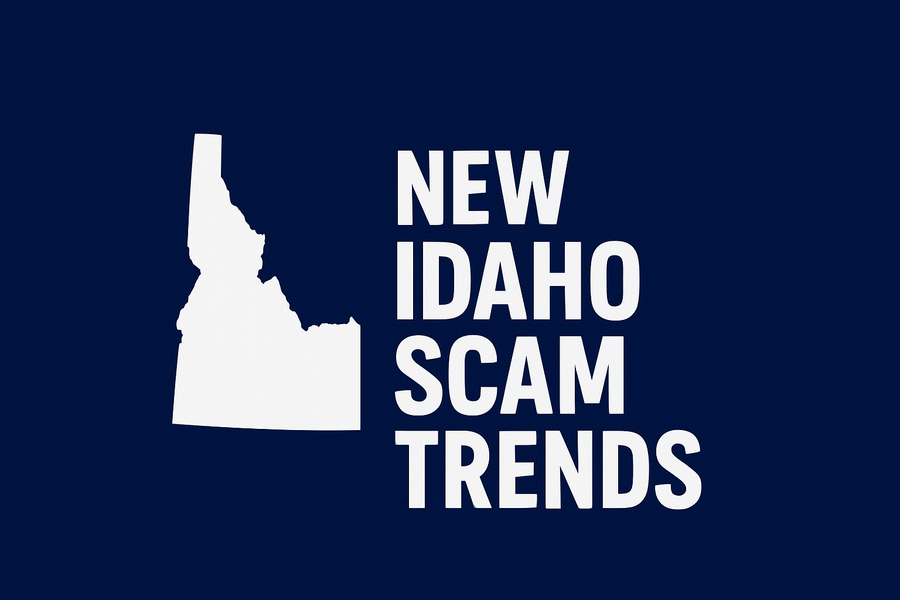
Idaho's Fraud Reality in 2024
Idaho ranked 45th in the nation for fraud and other reports per capita in 2024. Residents filed just over 16,000 fraud and related complaints with the Federal Trade Commission, and reported losses totaled about $54 million. The median loss was $490, and imposter scams were the single largest category at 19 percent of all complaints. Source: FTC Consumer Sentinel Network Data Book 2024
Idaho’s Consumer Protection in Action
In 2025, Idaho passed the Report and Hold law which allows financial institutions to pause suspicious transactions for up to 15 days when staff suspect an older adult or a person with disabilities may be the target of financial exploitation. That short pause lets banks contact state authorities, reach out to a trusted family member or caregiver, and review the transfer steps that can stop a scam that depends on speed and pressure. The change gives investigators and families a real window to act before money disappears. Source: AARP Idaho
Fraud may not top the charts in Idaho, but its impact is felt everywhere in a state where independence and community ties run deep, and scams often cut against the very values people take pride in. In a state where people often bank locally, a short pause gives families and investigators a real chance to stop a bad transfer.
Statewide laws should evolve to protect independence without replacing it.

Illinois's Fraud Reality in 2024
Illinois ranked 10th in the nation for fraud and other reports in 2024. Residents filed over 186,000 complaints with the FTC’s Consumer Sentinel Network. The recent report reveals a staggering total loss of about $318 million and a median loss of $400 per incident. Illinois residents are experiencing the large scale of this impact; both urban and rural residents are being targeted across multiple platforms. Source: FTC Consumer Sentinel Network Data Book 2024
Illinois’s Consumer Protection in Action
In April 2025, Attorney General Kwame Raoul secured a $12 million settlement with Direct Energy Services LLC after finding that the alternative retail electric supplier misled households throughout Illinois. The lawsuit argued that Direct Energy pushed customers into higher-cost electricity contracts (compared to what they’d pay with their regular public utility) through misleading and unfair business practices. Qualified customers for the lawsuit who used Direct Energy between 2013 and April 2025 will receive money based on their electricity usage. Source: Illinois Attorney General’s Office Press Release
Fraud in Illinois touches every corner, from Chicago suburbs to small-town Main Streets. And the scams themselves are getting sharper. The state’s quick participation in national settlements and consistent enforcement shows a willingness to keep pressure on companies, especially when scammers consider getting smarter and sharper with their deceptive practices.
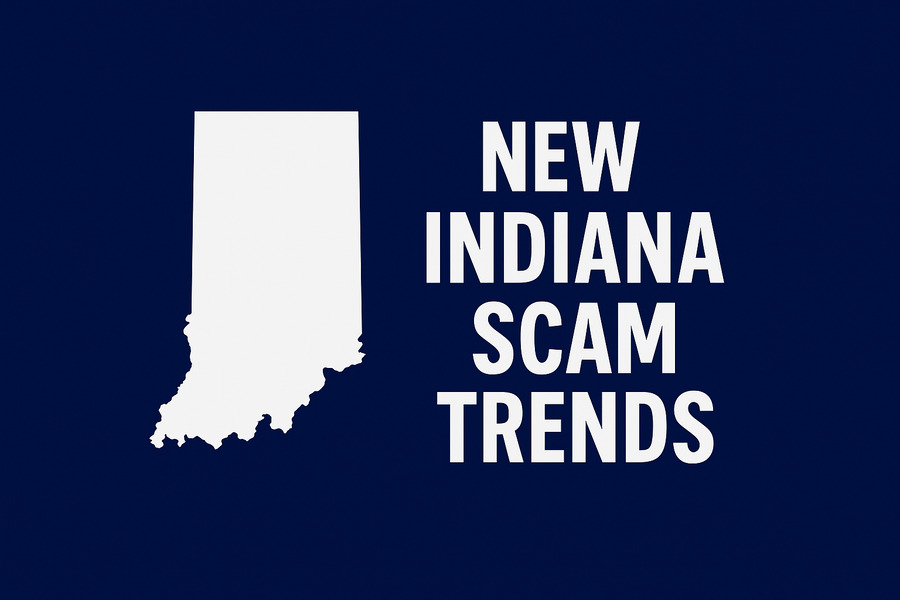
Indiana's Fraud Reality in 2024
Indiana ranked 29th in the nation for fraud and other reports in 2024. Residents filed over 73,000 complaints with the FTC’s Consumer Sentinel Network, reporting total losses of about $112 million and a median loss of $375 per incident. These figures reflect how widespread scams have become in Indiana, where both urban and rural residents are being targeted across phone, online, and digital-payment platforms. Source:
FTC Consumer Sentinel Network Data Book 2024
Indiana’s Consumer Protection in Action
In 2023, Attorney General Todd Rokita’s office reached a six-figure settlement with a finance company accused of using misleading loan offers connected to vehicle purchases. State investigators said people thought they were getting a great deal but ended up paying far more than expected through common scam tactics such as buried fees, steep rates, the works. The settlement is a bold reminder that Indiana's AG’s office isn’t shying away from calling out companies that bend the truth for profit. Source: Troutman Pepper Locke
Fraud in Indiana doesn’t just happen to the careless, it catches people off guard, often in situations that feel routine. The Attorney General’s Consumer Protection Division offers resources on identity theft, schemes, scams, and more. Indiana residents are urged to slow down, ask questions, and report anything that doesn’t seem right. Awareness, after all, is the one tool scammers can’t manipulate.
Whether it’s a contract that sounds a little too easy or a “deal” that feels rushed, taking an extra moment to read the fine print can make all the difference.
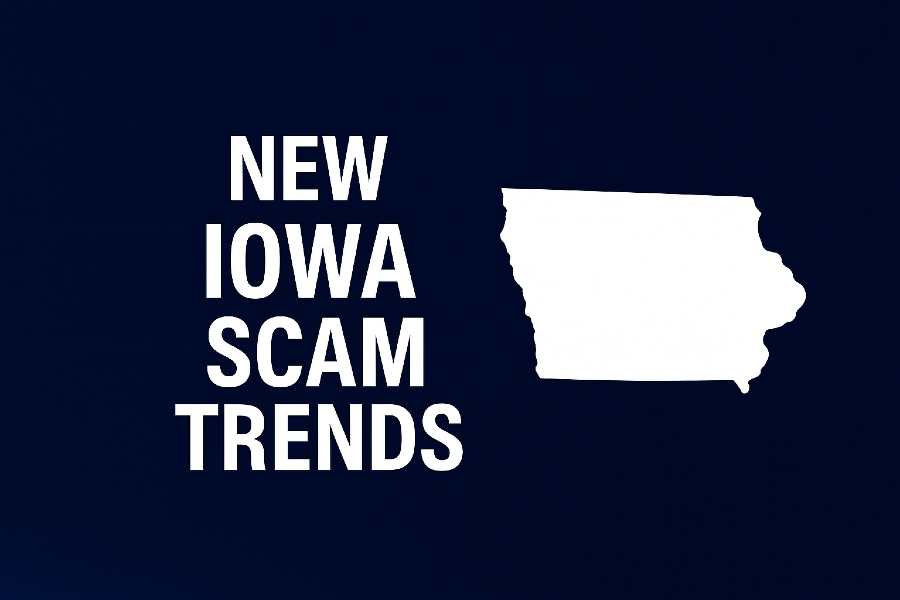
Iowa’s Fraud Reality in 2024
Compared to much of the country, Iowans are performing well in fraud prevention. In 2024, Iowa ranked 48th in the nation for fraud reports per capita. Residents filed nearly 23,000 fraud and related reports with the Federal Trade Commission, and these cases added up to $52 million in reported losses, with the median loss per reported scam at $400. While that figure may seem modest, for many households it represents a painful financial hit, and for others, the losses climbed much higher. From rural towns to urban hubs like Des Moines, Cedar Rapids, and Davenport, scammers are actively targeting Iowans. Source: Federal Trade Commission
Iowa’s Consumer Protection in Action
Iowans may be cautious shoppers, but scams and deceptive business practices still reach into communities across the state. The Attorney General's Consumer Protection Division works to protect consumers from fraud, ensure fair competition, and keep the public informed about how to avoid becoming a victim. Source: State of Iowa Office of the Attorney General
Fraud in Iowa is not just a number; it impacts farmers, small business owners, college students, and families that come from both bustling cities and quiet rural towns. Iowa’s strong sense of community and neighborhood networks give residents a unique advantage. Iowans help safeguard not just their own finances, but the integrity of the local economy that supports everything from family farms to Main Street businesses.
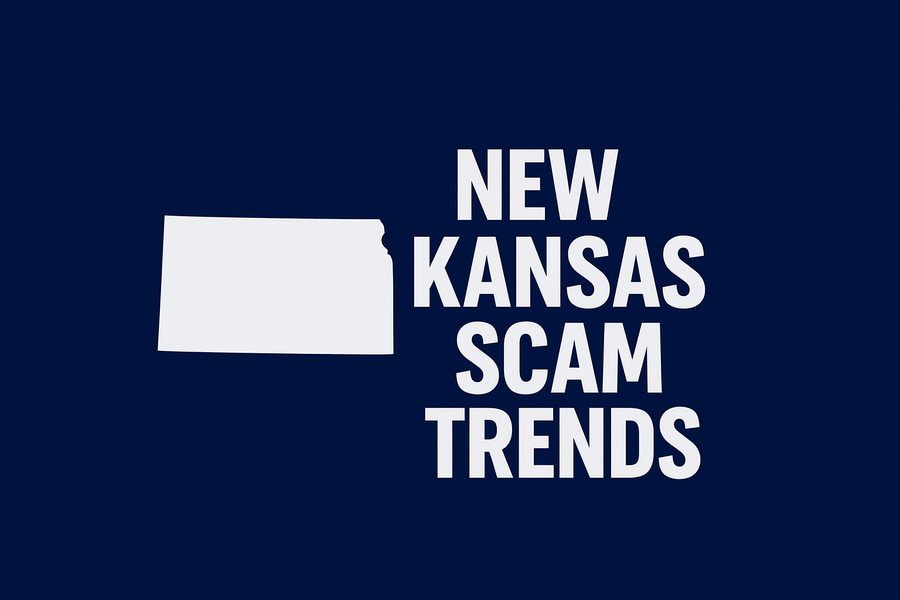
Kansas's Fraud Reality in 2024
Kansas ranked 46th in the nation for fraud and other reports in 2024, putting it on the lower end compared to many other states. Kansas did well, but even so, they still filed almost 25,000 fraud and related reports with the Federal Trade Commission. Losses added up to almost $58 million, and the median loss per case was just over $400, not earth-shattering, but multiply it across thousands of households, and it’s easy to see the damage. Source: FTC Consumer Sentinel Network Data Book 2024
Kansas’s Consumer Protection in Action
One recent shocking case involved a cryptocurrency investment scam that tricked a Kansas resident into sending currency overseas. The Kansas Attorney General’s office pursued the case and successfully recovered and returned more than half a Bitcoin and other digital assets to the victim of the scam. Officials called it one of the first civil actions of its kind in Kansas, a signal that fraud tactics are evolving quickly. Source: Public Technologies
Fraud in Kansas may not reach the same levels as other areas, but the people of Kansas are still at risk. And while the numbers suggest Kansas is faring better than most, the lesson is clear: vigilance is still the best defense.
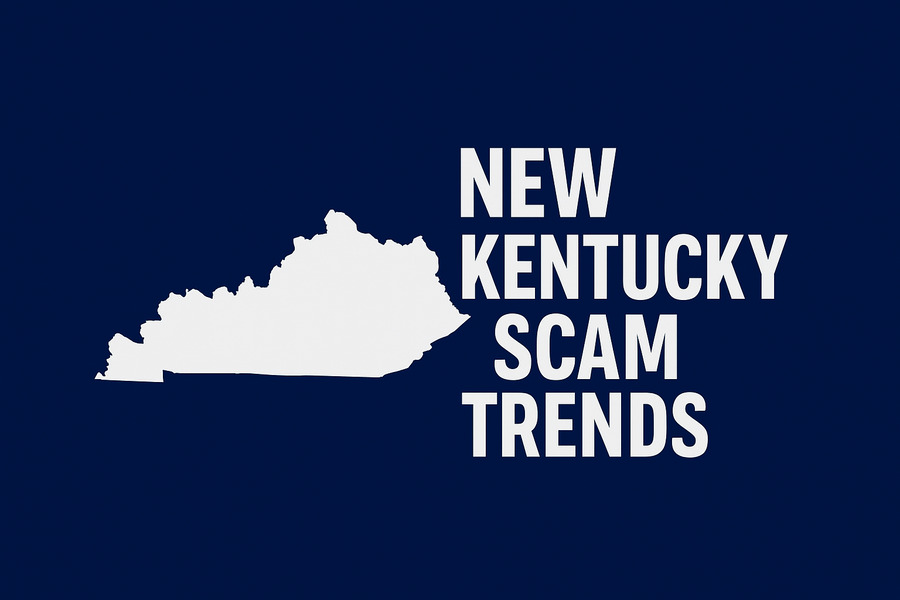
Kentucky's Fraud Reality in 2024
Kentucky ranked 44th in the nation for fraud and other reports in 2024. Residents filed almost 39,000 fraud and related complaints with the Federal Trade Commission that year, reporting about $71 million in total fraud losses. The median loss per reported scam was about $350 dollars, and imposter scams accounted for roughly 16 percent of complaints. Those figures make clear that while Kentucky sits in the lower half of the national rankings, scam activity is steady and often hits people where they least expect it. Source: Federal Trade Commission
Kentucky’s Consumer Protection in Action
State officials moved from warning to action on robocalls. Attorney General Russell Coleman and a 51-state task force sent letters to several voice providers they say have allowed illegal robocall traffic on their networks, shared their findings with the FCC, and warned of possible legal steps if the calls continue. The release notes that Kentuckians received an estimated 55.7 million robocalls in November alone, and that the calls often carried IRS, Social Security, auto warranty, and utility scams. The office says closing loopholes in the Robocall Mitigation Database and holding carriers accountable are central to slowing down the overload of scam/spam calls. Source: Kentucky Gov
In a place where a ringtone still pauses a kitchen table conversation, those calls matter. The state’s push to call out carriers and tighten the system shows a shift from chasing individual scammers to cutting off the pipelines they use.
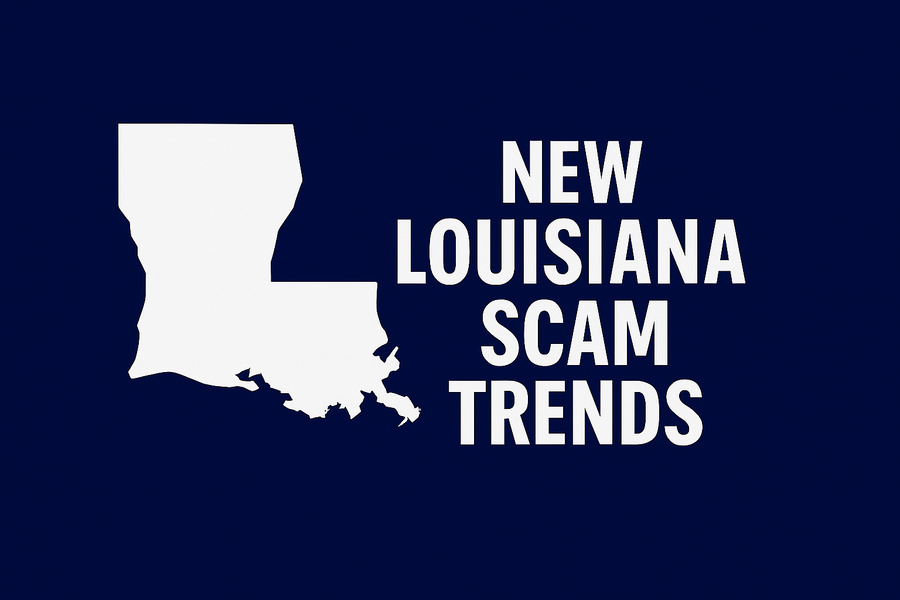
Louisiana's Fraud Reality in 2024
Louisiana ranked 9th when compared to all fifty states in fraud and other reports, and consumers reported over 68,000 of these reports in 2024, with total reported losses of about $89.4 million. The median fraud loss in those reports was $425. Source: Federal Trade Commission
Louisiana’s Consumer Protection in Action
In 2025, a Baton Rouge man, Oscar Hills IV, was convicted for his part in a large fraud scheme where he submitted fake loan applications under the guise of both a business and a nonprofit, seeking more than $800,000 in funds. According to the report, Hills used fake employee numbers and expenses, then used some of the money for personal purposes — including paying eleven years of back taxes. The case reflects Louisiana’s broader efforts to crack down on financial crimes that drain public funds and weaken trust in relief programs. Source: WBRZ News
What this means for Louisianans
Fraud in Louisiana isn’t just numbers — when insurance companies see surges in dubious claims, it means premiums go up, companies pass costs along, and people may find themselves paying more for protection. Staying alert is key: read policy fine print, verify information before paying, and report suspicious claims or offers to the AG or insurance fraud offices to help stop patterns.
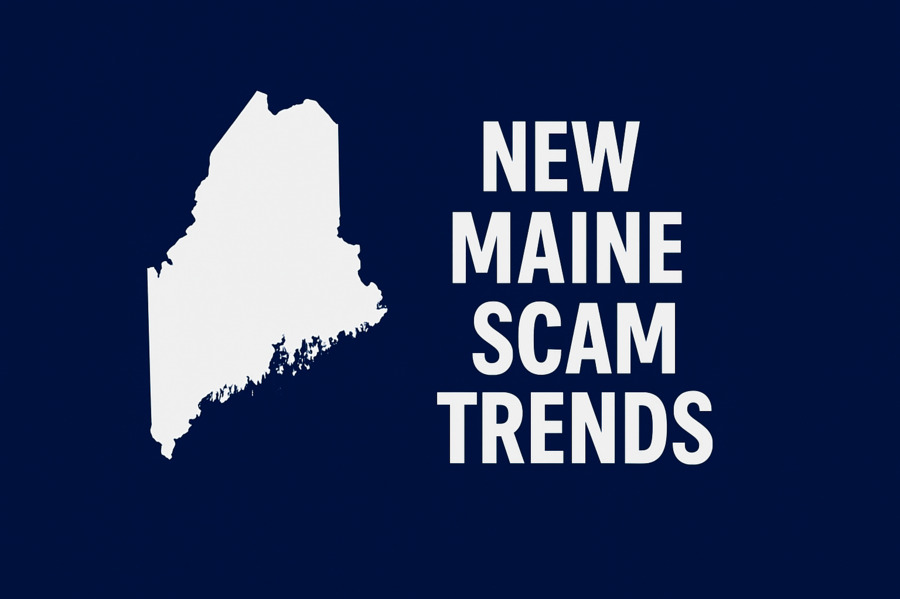
Maine's Fraud Reality in 2024
Maine ranked 42nd in the nation for fraud and other reports in 2024, with residents filing 12,106 complaints to the Federal Trade Commission. Reported losses totaled roughly $29 million, with a median loss of $350 per incident. Imposter scams were the most reported type of fraud, making up about 20% of all reports. Source: FTC Consumer Sentinel Network Data Book 2024
Maine’s Consumer Protection in Action
A surprising case came out of Cumberland County in late 2024. Portland resident Jody Flynn Dalvet was found guilty for running an entire investment fraud scheme through her company, Icy Gulch Resources. She talked five locals into investing over $1 million by promising returns and partnerships that weren't even real, then she used the money for personal expenses. The state prosecuted it under theft-by-deception. Source:
Maine.gov
This isn’t just about big dollar amounts — it’s about trust and vigilance. When someone offers what seems like a golden opportunity, whether in investment, contracts, or consulting, pauses are justified. Scams can start small; catching them early is the best way for Maine residents or others to avoid paying a much larger price.
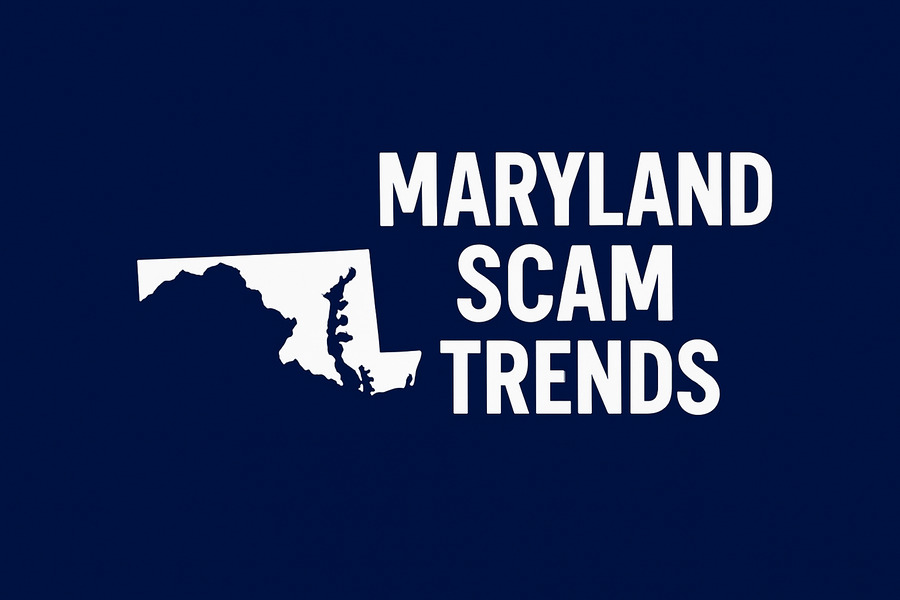
Maryland's Fraud Reality in 2024
Maryland residents reported more than 111,000 fraud cases in 2024, one of the highest totals in the country. Losses added up to nearly $200 million, with a median loss of $435 per case. The hit of scams, both minor and major, pushed Maryland into fifth place in the country for fraud reports per capita, proving that scammers are making a serious problem for the Maryland economy. Source: Federal Trade Commission
Maryland’s Consumer Protection in Action
The Maryland Attorney General’s Consumer Protection Division has pursued cases that reveal how deceptive practices can take advantage of residents at their most vulnerable. One recent case involved Probate Advance, LLC, a company that offered cash advances to people who believed they were heirs to estates. In exchange, families often ended up signing away large portions of their inheritance without fully realizing the long-term cost. The Attorney General’s office secured 2.7 million dollars in restitution. Source: Nottingham MD
Scams and unfair practices in Maryland affect a wide range of communities. With more older adults being targeted and families facing pressure from financial uncertainty, the impact of fraud is felt deeply. Maryland’s consumer protection work shows how state enforcement and public awareness campaigns together help the fight against scams in the state, but more work needs to be done.
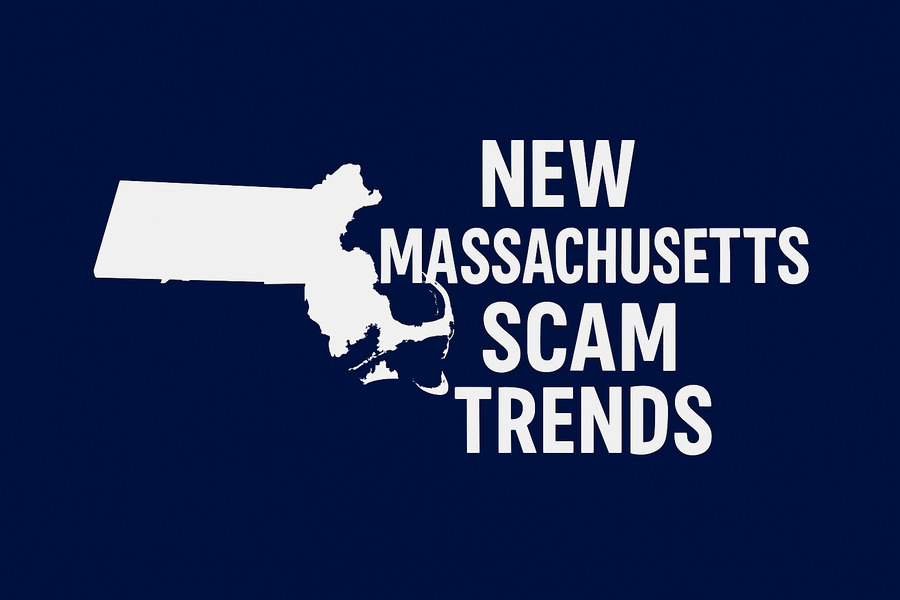
Massachusetts's Fraud Reality in 2024
Massachusetts rated 24th in the nation for fraud and other reports in 2024. Locals filed over 81,000 fraud and related reports with the FTC’s Consumer Sentinel Network, documenting over $210 million in total losses. The average loss per incident was $425. Source: FTC Consumer Sentinel Network Data Book 2024
Massachusetts’s Consumer Protection in Action
In August 2025, Massachusetts Attorney General Andrea Campbell secured a $2 million settlement with Cypress Loan Servicing LLC after allegations the business violated several laws, including state consumer protection, foreclosure prevention, and debt collection laws. The AGO alleged that Cypress imposed high up-front fees, failed to provide timely notices, and made excessive debt collection calls in violation of Massachusetts law. The settlement requires Cypress to pay into the Commonwealth, enact reforms to its servicing practices, and report compliance to the AGO. Source:
Mass.gov
While Massachusetts is ranked 24th in the nation, the state is not immune to the damage of scam loss. Consumer losses remain significant, but the Attorney General’s office has shown it is willing to flex its legal authority to hold companies accountable.
For residents, the takeaway is clear: Be cautious with unrealistic promises, keep detailed records when something seems off, and don’t pause to contact state enforcement if your rights are at risk.
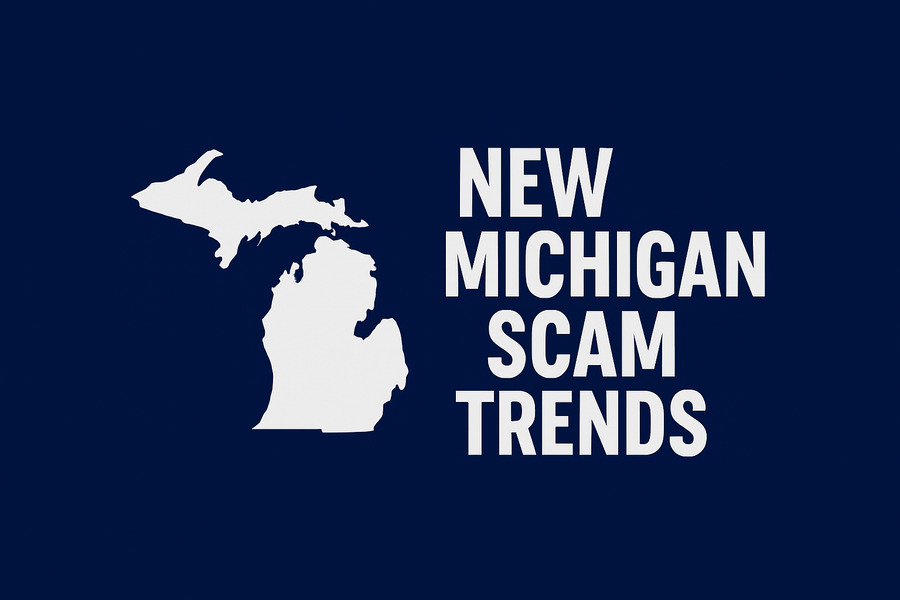
Michigan's Fraud Reality in 2024
Michigan ranked 23rd in the nation for fraud and related reports in 2024, landing just above the middle of the pack. Residents filed more than 117,000 complaints with the Federal Trade Commission that year, and reported losses totaled about $204 million. The median loss per victim was $350; lower than in many states, but still meaningful. Credit bureaus and information furnishers were behind roughly 22% of complaints, showing that large institutions can also be targets. Source: Federal Trade Commission
Michigan’s Consumer Protection in Action
State officials move quickly to shut down phishing schemes that involve impersonated utility companies and stolen bank details. The Attorney General’s office typically will open an investigation, issue public warnings, and work with local banks by encouraging them to act quickly. These types of phishing schemes show how quickly scammers adjust to everyday routines like bill paying and checking email; the proactive responses from the state officials aims to safeguard Michigan consumers, but also strengthens the overall integrity of the financial system in the area. Source: Michigan Department of Attorney General
Let’s get proactive with protection. Set up transaction alerts, create strong passwords, enable two-factor authentication, review your credit reports regularly, and make the most of Michigan’s resources.
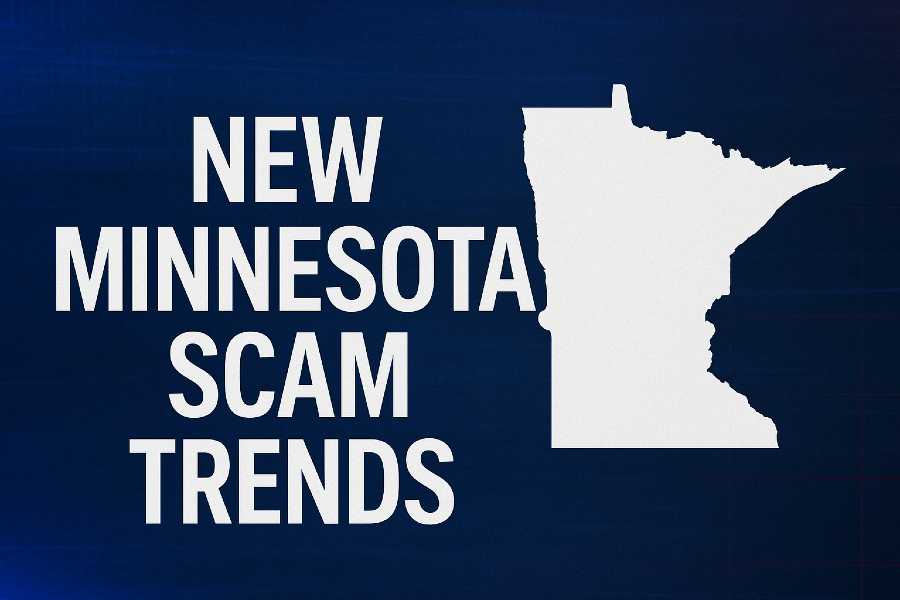
Minnesota’s Fraud Reality in 2024
Closer to home, Minnesotans know too well how costly scam calls and fraud can be. Last year, people in our state lost $144.6 million to fraud schemes of all kinds, with imposter scams and identity theft leading the way. On average, each victim lost about $412, but many lost far more when fake tech support, grandparent scams, and government impersonators convinced them to send money or share sensitive information. Interestingly, Minnesota ranked 39th in the nation for fraud reports in 2024, putting us on the lower end compared to most other states. Even so, millions of dollars are still lost here every year, reminding us that no community is immune to clever scam tactics. Source: Federal Trade Commission
Minnesota’s leaders have stepped up their fight. The Attorney General’s Scam Stopper initiative remains a vital resource offering alerts, practical tips, and sources for reporting fraud. Source: Minnesota Department of Commerce
Every call answered carefully and every scam reported helps protect our neighbors. As scam tactics grow more advanced, knowing the signs and talking with family and friends about new scams is the best line of defense. Staying informed, sharing updates when new scams surface, and reminding loved ones to pause before giving out information can make all the difference in keeping our communities safer.
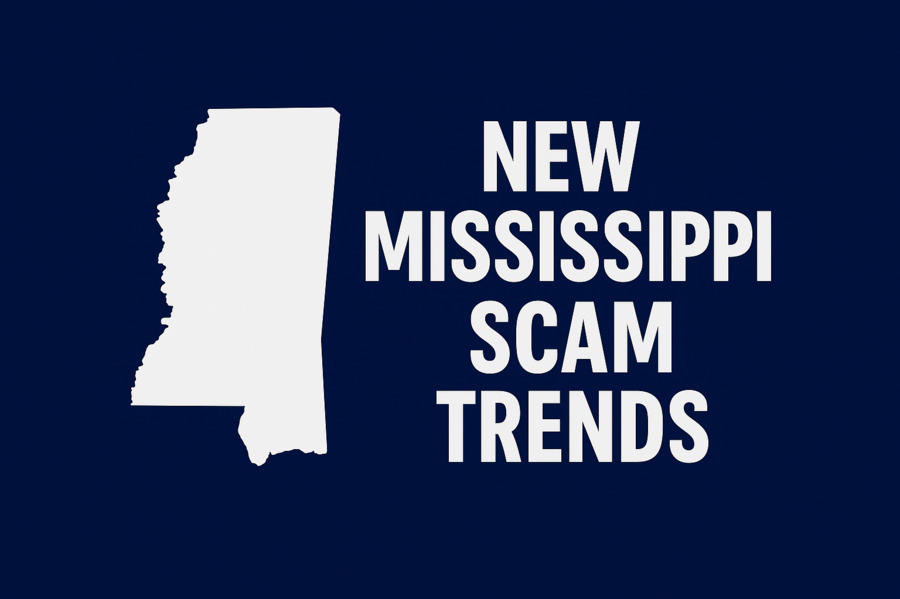
Mississippi's Fraud Reality in 2024
In 2024, Mississippi residents ranked 19th for fraud and other related reports, filing just over 36,000 reports through the Federal Trade Commission. The losses were roughly $44 million, and the median loss was $353 per incident. Out of all the reports, 32% involved credit bureaus and information furnishers. Source: Federal Trade Commission
Mississippi’s Consumer Protection in Action
In late 2024, Mississippi Attorney General Lynn Fitch filed a major lawsuit against several pharmacy benefit managers (PBMs) and took a strong stance against the opioid crisis. Fitch said these companies played a role in worsening the state’s opioid crisis by putting profits ahead of patients and allowing highly addictive drugs to overflow in Mississippi communities. The lawsuit marked one of the state’s biggest legal moves in 2024 and aimed to hold powerful healthcare middlemen accountable. Source: Clarion Ledger
Protecting Mississippi Consumers
Fraud and deceptive practices drain savings, disrupt livelihoods, and weaken trust in the state’s economy. Mississippians can protect themselves by:
- Verifying offers that seem too good to be true before sharing personal information or making payments.
- Monitoring credit reports regularly, especially given the state’s high volume of credit-related complaints.
- Reporting scams promptly to the Mississippi Attorney General’s Consumer Protection Division or the FTC to help authorities take swift action.
- Educating family members, particularly seniors and young adults, about common scam tactics.
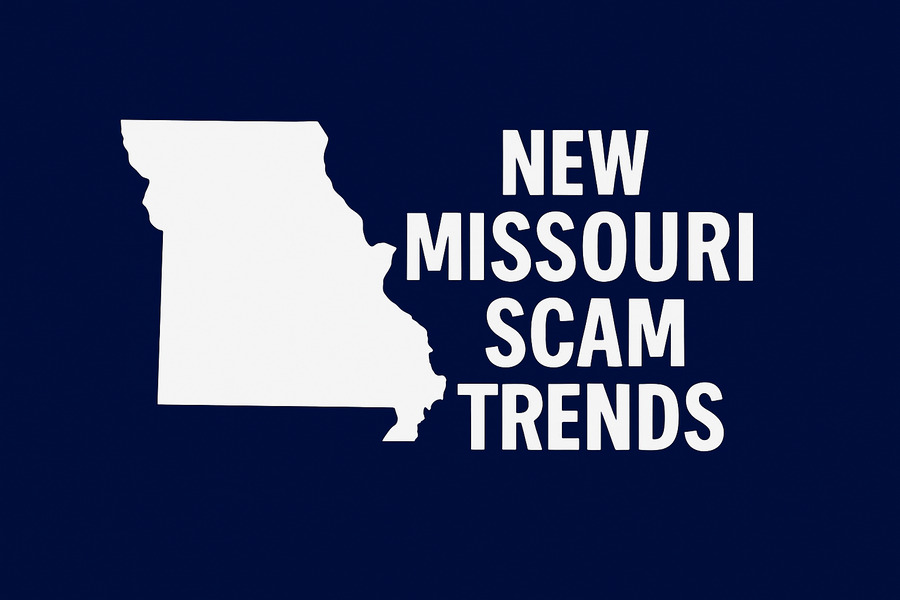
Missouri's Fraud Reality in 2024
In 2024, Missouri residents filed 72,120 fraud and other consumer protection reports through the Federal Trade Commission and ranked 22nd nationally for total reports. Many of these complaints involved imposter scams, online shopping fraud, and credit reporting disputes, among other types of reports, and the total reported losses reached close to $140 million. While the average loss per reported incident was only $400, that amount can cause serious hardship for Missourians living paycheck to paycheck. Source: Federal Trade Commission
Missouri’s Consumer Protection in Action
In August 2025, Missouri's Attorney General Andrew Bailey filed a lawsuit against a Missouri boutique owner accused of swindling money from customers by taking payments for children’s clothing that they then never received. The AG’s office alleges that the boutique, named The Cozy Pozy Company, repeatedly ignored refund requests and misled customers about shipping times. Source: MO.gov
Fraud and deceptive business practices continue to drain Missouri households of hard-earned savings and trust. Experts say the best defense and protection for finances is a little skepticism, such as double-checking offers before signing up, steering clear of high-pressure sales pitches, and never sharing personal details with unverified sources. Staying informed is just as important as staying cautious. Keeping up with scam alerts on the Missouri government’s website can give residents a crucial edge in protecting their money and personal information.
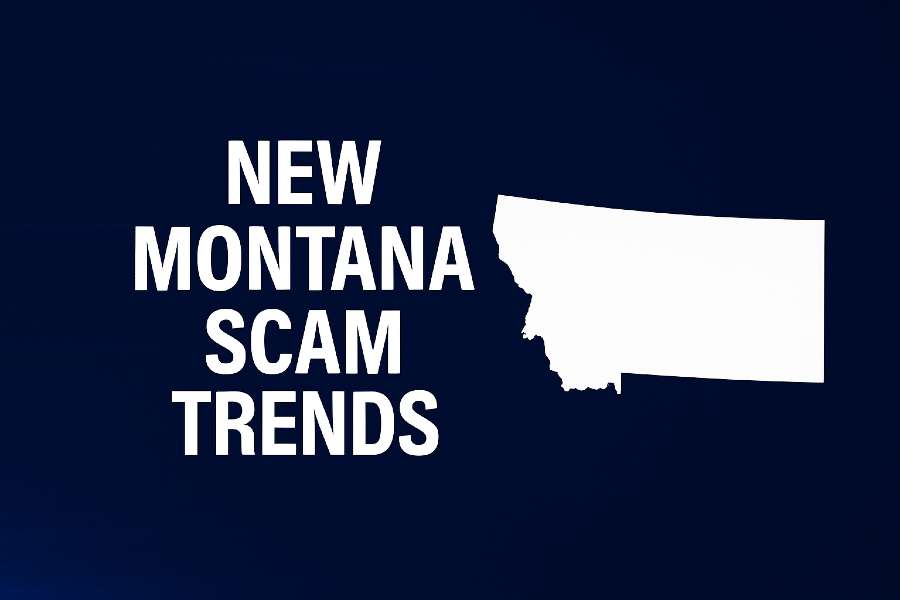
Montana’s Fraud Reality in 2024
In 2024, Montanans reported 9,651 cases to the Federal Trade Commission. The total losses were over $22 million, with most people losing about $459 per scam. Montana ranked 43rd in the nation for fraud and consumer reports, showing that while the state does better than many, scams are still something to watch out for. Source: Federal Trade Commission – 2024 Consumer Sentinel Network Data Book (PDF)
Montana’s Consumer Protection in Action
The Montana Department of Justice’s Office of Consumer Protection offers scam alerts, education, and direct assistance to victims of fraud. Montanans can file complaints online or by calling 800-481-6896.
To contact a specific department, a detailed list can be found here: Important Montana Consumer Protection Numbers
Montana ranks 43rd compared to other states, which means residents report fewer fraud cases per capita than most of the country.
While that is a good sign, it does not mean the state is free from risk. Scammers haven’t slowed down and continue to shift their tactics to catch people off guard, often using methods designed to pressure targets into acting fast. In Montana, scammers often pretend to be familiar people or trusted groups to create a sense of urgency and trust. Montanans should be careful, because even offers that seem related to the state’s lifestyle or economy can be used to trick them.
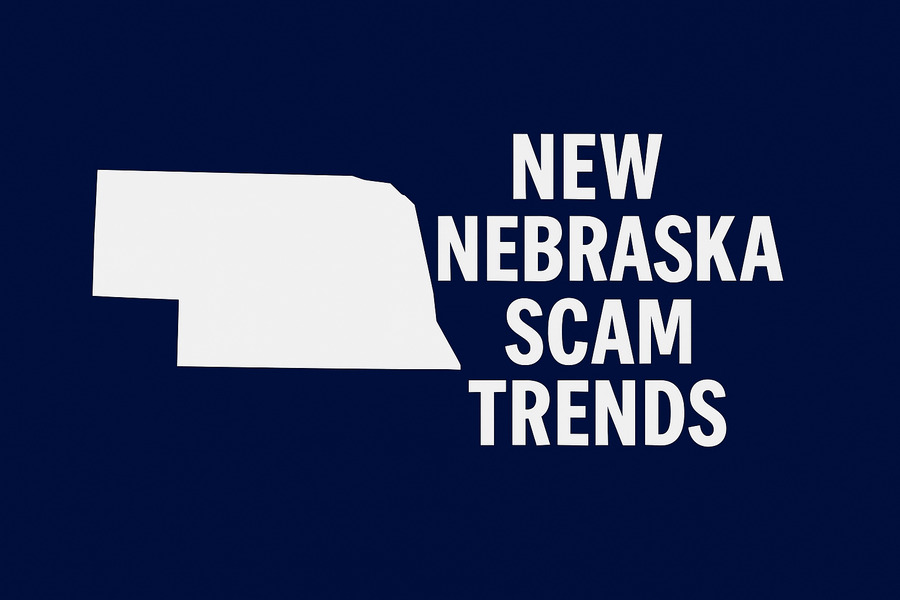
Nebraska's Fraud Reality in 2024
In 2024, Nebraska residents filed 17,438 fraud and other consumer-protection reports with the Federal Trade Commission. Reported losses totaled right under $42 million, with a median loss of $400 per case; an amount that might seem small on paper but can easily derail a family with a tight budget or someone who is low-income. Coming in 41st in the nation for total reports, Nebraska’s data tells a quieter story, one where credit bureaus and information furnishers actually are 15% of all reported cases and are ranked just below the imposter scams that make headlines. Source: Federal Trade Commission
Nebraska’s Consumer Protection in Action
Nebraska Attorney General Mike Hilgers has made consumer protection a top priority. In late 2024, his office filed a major lawsuit against a group behind the WiFi Money influencer scheme, accusing them of luring residents into bogus “passive income” programs that drained thousands of dollars from victims across the state. The AG’s office said the defendants used flashy social media posts and false promises of easy money to trick consumers into costly dropshipping ventures that rarely paid off. Source: Nebraska.gov
Scams are getting smarter, but so can consumers. Taking a minute to verify offers, read the fine print, and slow down when someone’s pressuring you to “act fast” can make all the difference. Staying alert to new fraud trends on the Nebraska Attorney General’s Consumer Protection page helps residents spot red flags early and protect both their money and their peace of mind. A little caution today can keep a lot more cash and confidence right where it belongs: at home in Nebraska consumer’s wallets and honest businesses.
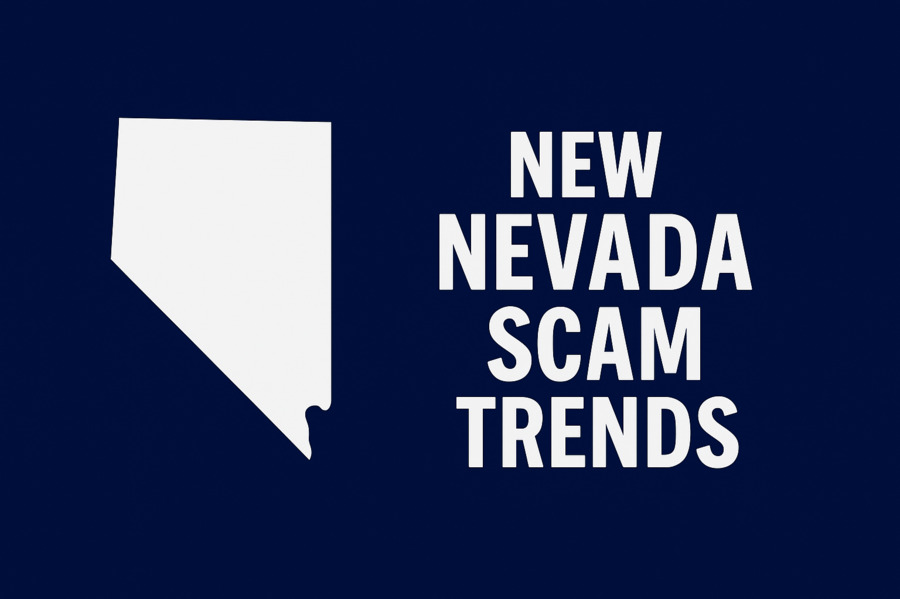
Nevada's Fraud Reality in 2024
In 2024, 24,331 fraud and other reports were filed by Nevadans with the FTC’s Consumer Sentinel Network, with a state rank of 4th place. Total reported losses reached $138.5 million, and the median loss per incident was $519. Credit bureaus and information furnishers came out on top of complaint categories.
Source: Federal Trade Commission
Nevada’s Consumer Protection in Action
Nevada AG Aaron D. Ford has gone after fraud in critical areas. In September 2024, his office convicted True Family Services, Inc. of billing Medicaid for mental health services that were never provided. The provider was ordered to pay $52,000 in restitution after false claims were uncovered, showing how health-care fraud isn’t just something that happens far away—it hits Nevada families and taxpayers directly. Source:
Nevada Attorney General
Losses of this size are more than numbers and they can sideline a month’s budget and mess with credit. To avoid getting caught: pause before you buy; read the fine print on promos; don’t let flashy ads or “free deal” offers rush you. Keep tabs on scam alerts via the Nevada Attorney General’s Bureau of Consumer Protection; it’s where folks can find real-time warnings and learn what to check so shady marketing or misinformation doesn’t cost them.

New Hampshire's Fraud Reality in 2024
In 2024, New Hampshire residents filed 14,342 fraud and other consumer reports with the FTC’s Consumer Sentinel Network. Total reported losses topped $34.6 million, with a median loss of $325 per case. The state ranked 30th in the nation for total reports. Around 19% of reports involved imposter scams, a huge concern for Granite Staters. Source: Federal Trade Commission
New Hampshire’s Consumer Protection in Action
Attorney General John M. Formella has been zeroing in on business practices that take unfair advantage of consumers. In May 2025, his office sued Redwood Personal Training (operating inside The Zoo Health Clubs) over “bait-and-switch” contract cancellation policies. The suit claims Redwood locked customers into long, expensive contracts, slapped on hefty termination fees, and delayed cancellations so that many kept getting billed even after they asked to end memberships. Source: Concord Monitor
Even when laws exist, consumers are at the front line. If you are a New Hampshire resident, watch for alerts from the New Hampshire Department of Justice’s Consumer Protection Bureau as they publish updates on recent frauds and cases so you can spot a bad deal before it hits.
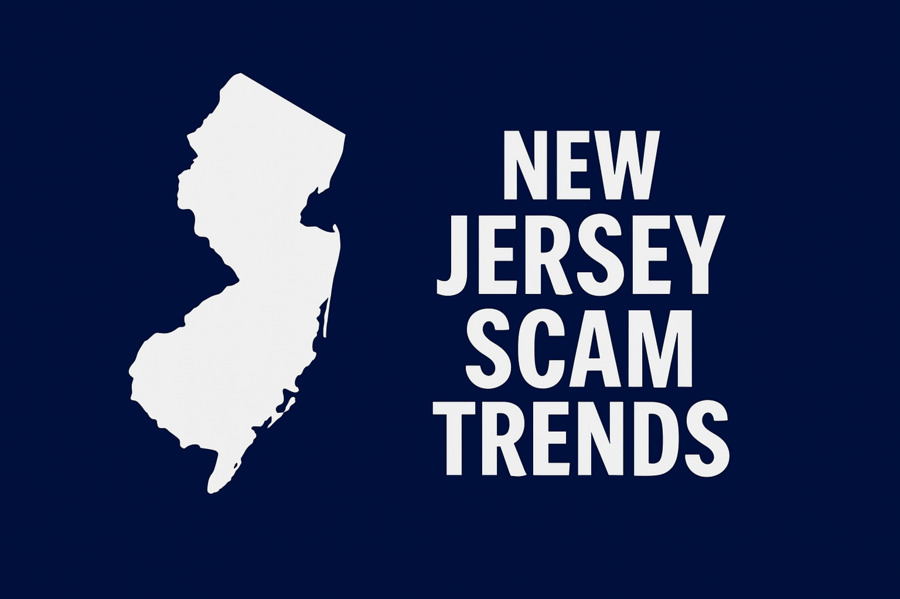
New Jersey's Fraud Reality in 2024
New Jersey ranked 8th nationwide for fraud and consumer complaints in 2024, with residents submitting nearly 140,000 reports to the FTC’s Consumer Sentinel Network. Total reported losses hit over $314 million, with a median loss of $500 per incident — enough to send someone living month-to-month into real trouble. Issues with credit bureaus and information furnishers topped the list, making up over a quarter of all consumer complaints across the state. Source: Federal Trade Commission
New Jersey’s Consumer Protection in Action
Attorney General Matthew J. Platkin has taken direct action. In February 2024, his office seized more than $6.4 million in a judgment by consent in a case against a chain of mental health clinics that billed Medicaid for services that were either unnecessary or never provided across multiple counties. That money comes from a scheme that drained public health resources and hurt both patients and taxpayers. Source: State of New Jersey
To avoid becoming the next victim as a New Jersey resident: take a beat before giving out sensitive info, check your credit reports often, and inspect medical bills carefully. Keep up with scam alerts via the NJ Attorney General’s Division of Consumer Affairs.
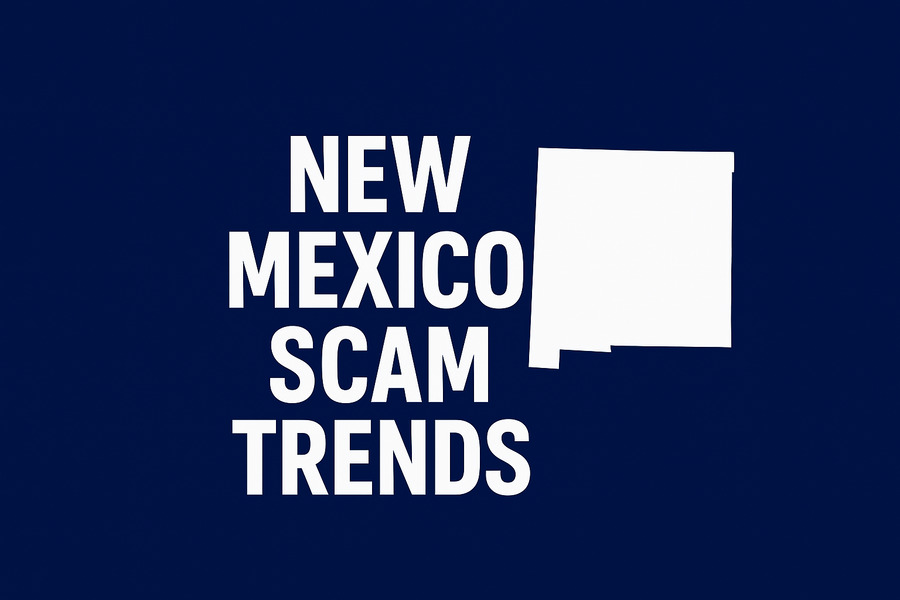
New Mexico's Fraud Reality in 2024
New Mexico landed near the middle of the pack in 2024, ranking 32nd nationwide for fraud and related reports. Residents turned in almost 21,000 complaints to the Federal Trade Commission over the course of the year, with reported losses adding up to about $56.6 million. The median reported loss was $500, which means many incidents were relatively small but a meaningful number of cases involved much larger sums. Source: Federal Trade Commission
New Mexico’s Consumer Protection in Action
New Mexico’s Attorney General runs a Consumer Protection Bureau that acts like the state’s consumer watchdog: it takes consumer tips and complaints, opens investigations when patterns or harms appear, and, if needed, sues companies or bad actors to win refunds, penalties, and repayment of costs so victims and taxpayers aren’t left holding the bill. The bureau also enforces laws such as the Unfair Practices Act and the Fraud Against Taxpayers Act, handles antitrust matters, and even oversees tobacco-settlement compliance, while also running public education campaigns and issuing scam alerts. Source: New Mexico Department of Justice
The numbers show that New Mexico experiences a steady stream of scams across both rural and urban areas. New Mexico’s communities, from urban neighborhoods to ranchland, are strongest when people speak up. Reporting fraud helps keep local economies and loved ones safer.
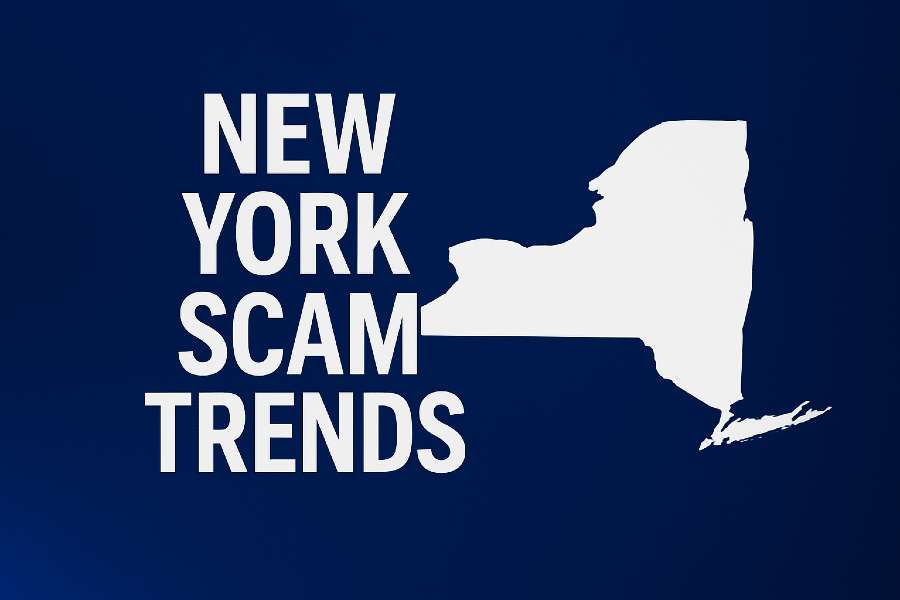
New York’s Fraud Reality in 2024
New Yorkers are consistently hurt by the costly consequences of scam calls and fraud. Last year, people in the state lost $534 million to various types of fraud schemes, with identity theft being the primary culprit. On average, each victim lost about $429, but many lost far more. Unfortunately, New York ranked 13th in the nation for fraud and other reports in 2024, putting the state well above average compared to most others. Source: Federal Trade Commission – 2024 Consumer Sentinel Network Data Book (PDF)
New York’s Consumer Protection in Action
New York takes consumer protection further than most states, often leading high-profile cases that set national precedents. The Attorney General’s Consumer Frauds & Protection Bureau doesn’t just warn about scams. It regularly sues major corporations, wins restitution for victims, and tackles emerging threats like digital fraud and deceptive online practices. This broad approach makes New York’s office one of the most influential in the country when it comes to holding scammers accountable. A recent example is the state’s lawsuit against Zelle’s parent company, accusing it of enabling more than $1 billion in consumer fraud losses since 2017 (ag.ny.gov).
Fraud hits New York harder than many other states. That could be due to New York’s dense population, high financial activity, and diverse communities, which together create prime conditions for scams to thrive. This may be one of the main reasons New York invests so heavily in fraud prevention efforts.
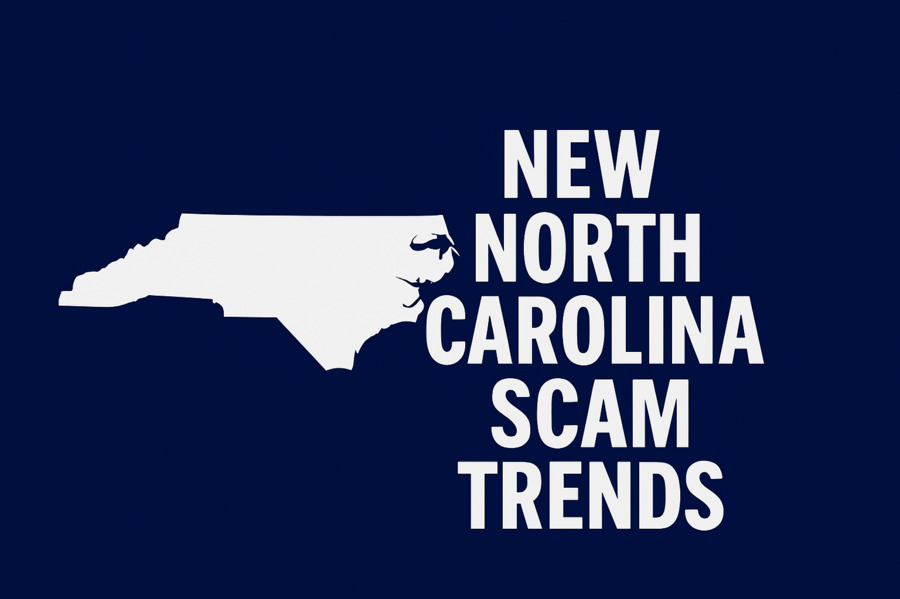
North Carolina's Fraud Reality in 2024
In 2024, North Carolina ranked 15th in the nation for fraud and other consumer reports filed with the FTC’s Consumer Sentinel Network. Residents submitted almost 145,000 complaints, reporting total losses of $276.8 million and a median loss of over $400 per incident. Credit bureaus and information furnishers made up 25% of all reports, the largest category, followed by identity theft and imposter scams. Source: Federal Trade Commission
North Carolina’s Consumer Protection in Action
Attorney General Josh Stein has cracked down on deceptive home-agreement scams run by MV Realty. In 2024, the state moved for a permanent ban on the company’s operations in North Carolina. MV Realty' s agreements tied homeowners to exclusive 40-year listing deals — even after the homeowner passed away. State officials said MV Realty’s tactics tricked families into giving up control of their own property, sparking outrage across the state. Source: WCNC Charlotte
Awareness is more than prevention; it’s power in the hands of North Carolinians and scams and predatory lending often thrive on urgency.
- Check with the North Carolina Department of Justice’s Consumer Protection Division before signing or paying anything.
- The agency posts regular alerts about new scams and shady offers, helping residents stay one step ahead.
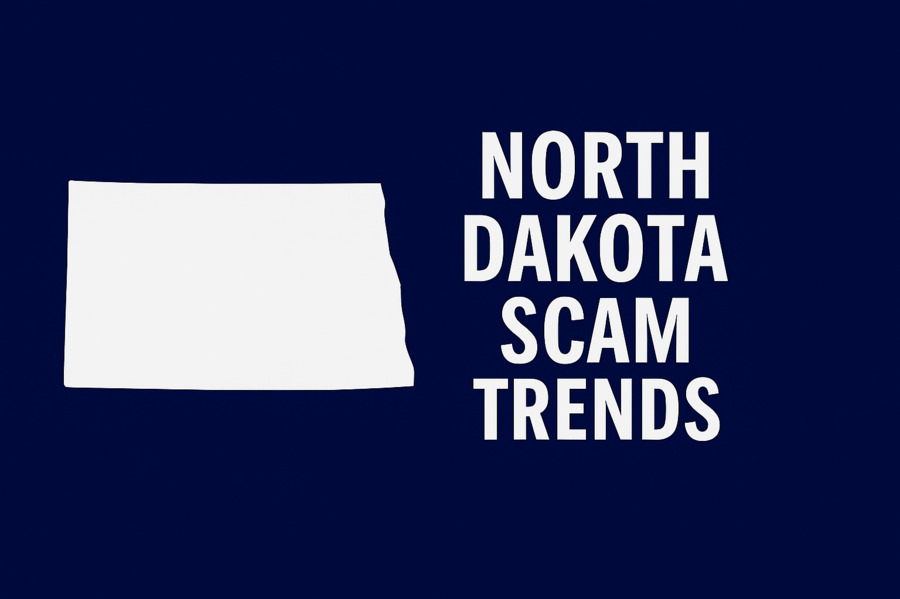
North Dakota's Fraud Reality in 2024
In 2024, North Dakota ranked almost last in the nation, 49th, for fraud and other consumer reports filed with the FTC’s Consumer Sentinel Network. Residents submitted over 5,000 complaints, reporting total losses of more than $14 million and a median loss of $479 per incident. Credit bureaus and information furnishers made up 25% of all reports, the largest category, followed by identity theft and imposter scams. Source:
Federal Trade Commission
North Dakota’s Consumer Protection in Action
In July 2024, North Dakota Attorney General Drew Wrigley issued a Cease & Desist Order against Minot Smoke Shop Inc., doing business as “Smokes4Less,” for selling controlled substances without proper labeling. The products at question were misbranded to appear legal and free from controlled substances, putting consumers at risk of unknowingly purchasing and consuming dangerous substances And, despite prior warnings, the shop continued these practices, prompting immediate state action. Source: North Dakota Attorney General
From Minot to Fargo, scams hit North Dakota residents and often disguised as “too-good-to-be-true” deals. The North Dakota Department of Justice’s Consumer Protection Division posts regular alerts about new scams as well as unsafe products and shady offers, helping residents protect their wallets, homes, and families before trouble finds them.
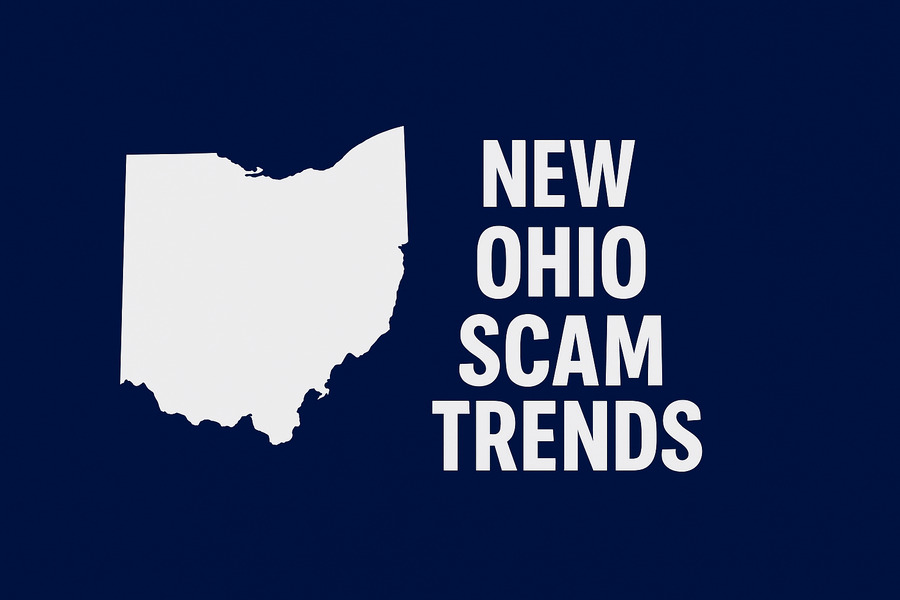
Ohio's Fraud Reality in 2024
Ohio had an average performance in 2024 for fraud prevention, ranking 26th in the nation for fraud and related reports in 2024. Residents filed 131,319 complaints with the FTC's Consumer Sentinel Network that year, reporting over $226 million in losses and a median loss of $350 per incident. Source: FTC Consumer Sentinel Network Data Book 2024
Ohio’s Consumer Protection in Action
In June of 2025, the state of Ohio filed a lawsuit against Marioth Custom Construction and its owner, Shawn Marioth. The complaint alleged that the Sunbury-based company accepted payments totaling around $44,588 from five homeowners but allegedly failed to complete the remodeling projects that were paid for, repeatedly delaying the projects that needed to be completed. This case is a clear and telling example of how the Ohio Attorney General's office can step in when families are suffering from potential scams. Source: ABC6 On Your Side
Fraud in Ohio is more than scam calls; it also includes disruptions in plans, drained savings, and various other forms. State enforcement can make a difference, but it often starts with consumers speaking up. Ohio residents can also do their part by doing their research, demanding clear contracts, and alerting the Attorney General's office when things don't make sense.
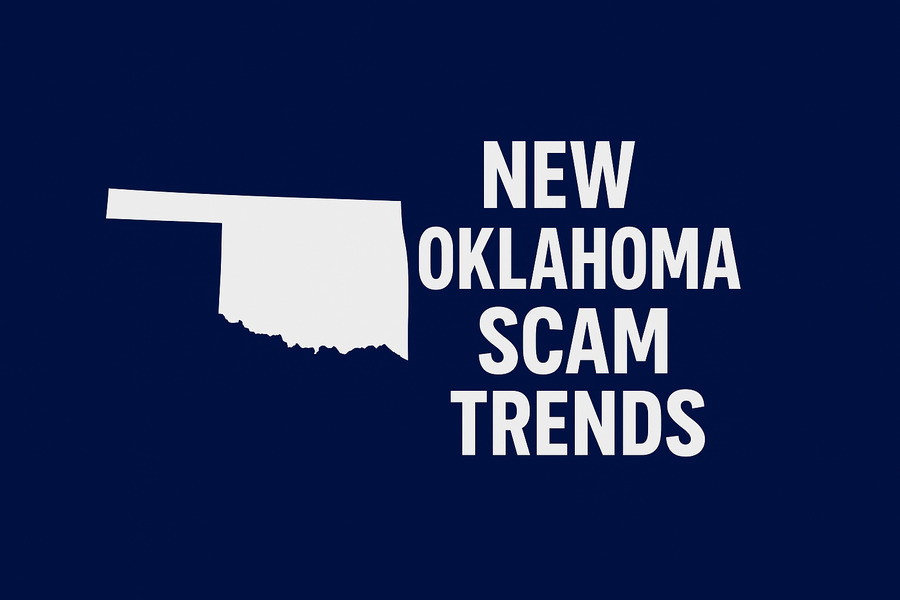
Oklahoma's Fraud Reality in 2024
Oklahoma ranked 37th in the nation for fraud and other reports in 2024, with Oklahomans filing 36,266 total reports with the FTC’s Consumer Sentinel Network and reporting over $72 million in total fraud losses (with a median loss of $432 per incident). Modest on its face, but significant when multiplied across tens of thousands of households. Source: Federal Trade Commission
Oklahoma’s Consumer Protection in Action
In April 2025, the Oklahoma Attorney General’s Office announced charges against a Pawnee woman accused of laundering about $1.5 million from online romance cons that targeted elderly women. According to the release, victims were persuaded to move money through several channels, including bank transfers and other payment methods. One victim sold her home and sent about $600,000. The investigation began after MidFirst Bank flagged and held a suspicious $120,000 transfer, and the AG’s Consumer Protection Unit worked the case with local authorities. The defendant now faces criminal charges. Source: Oklahoma Attorney General
Although the state’s per-capita ranking sits slightly better than mid-range, the combination of FTC data and active state enforcement shows that every state needs to be vigilant in its efforts to fight scam.
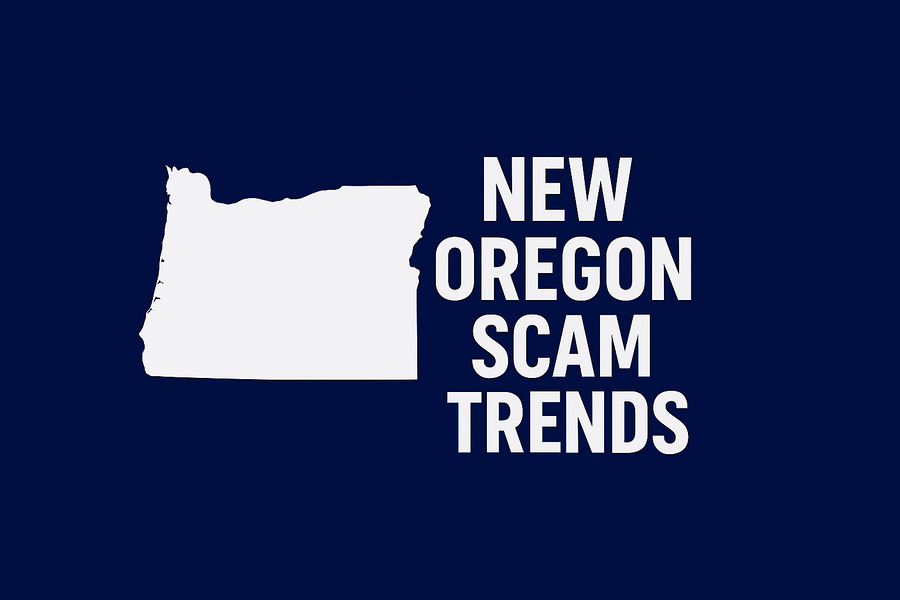
Oregon's Fraud Reality in 2024
Oregon ranked 27th in the nation for fraud and other reports in 2024, showing that the state is roughly in the middle when it comes to dealing with its share of scams compared to much of the country. That year, Oregonians filed more than 46,000 fraud reports with the Federal Trade Commission, with total reported losses of roughly $124 million. The median loss per case came in at about $400. Multiplied across households, the economic and emotional toll is significant. Source: FTC Consumer Sentinel Network Data Book 2024
Oregon’s Consumer Protection in Action
In 2025, the Oregon Department of Justice issued an urgent alert about a growing “gold bar” scam that had already cost victims tens of thousands of dollars each. Scammers would use fear tactics and pose as federal agents or even bank officials and convinced Oregon residents to withdraw their savings and buy gold as protection against alleged account fraud, only to steal the savings themselves. The DOJ moved fast to warn the public and expand outreach through its Consumer Protection Hotline, aiming to stop losses before they spread further. Source: Oregon Department of Justice
Fraud in Oregon may be rising, and scammers may be getting smarter, but the response is advancing with it. The active stance of Oregon’s DOJ and other agencies shows that prevention and enforcement remain priorities, which helps keep Oregon in the middle of the pack instead of at the top.
The bottom line: as scams evolve, so must awareness, and vigilance remains the strongest shield against financial crime.
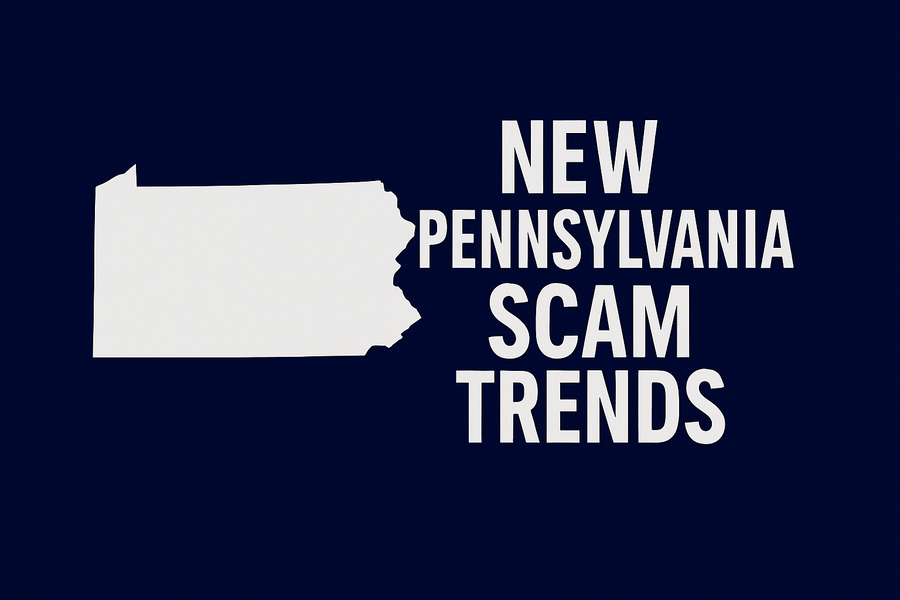
Pennsylvania's Fraud Reality in 2024
Pennsylvania residents felt the sting of fraud in 2024 as they ranked 12th in the nation for fraud and other consumer reports filed with the FTC’s Consumer Sentinel Network. Residents submitted over 184,000 complaints, reporting total losses of $285.4 million and a median loss of $350 per incident. The huge number of reported losses highlights how costly scams have become for the Pennsylvania economy as a whole and even the average loss of a few hundred dollars per victim can still affect the individual level. Source: Federal Trade Commission
Pennsylvania’s Consumer Protection in Action
In one high-profile win for Pennsylvania consumers, Attorney General Michelle A. Henry slammed Equifax with a $485,000 settlement after a 2022 coding glitch tanked credit scores for roughly 51,000 Pennsylvanians. This settlement underscores Pennsylvania's commitment to holding corporations, even ones that are large and powerful, accountable for their actions. Source: CBS News
Fraud isn’t abstract—it hits close to home in Pennsylvania. Whether someone is buying furniture in Pittsburgh, signing a home repair contract in Allentown, or shopping online from Philadelphia, scams can appear in any neighborhood or inbox. The Pennsylvania Office of Attorney General posts timely alerts on emerging scams and provides step-by-step guidance for reporting suspicious activity. Pennsylvania residents are encouraged to check these alerts regularly, verify businesses before paying, and report any suspicious offers.
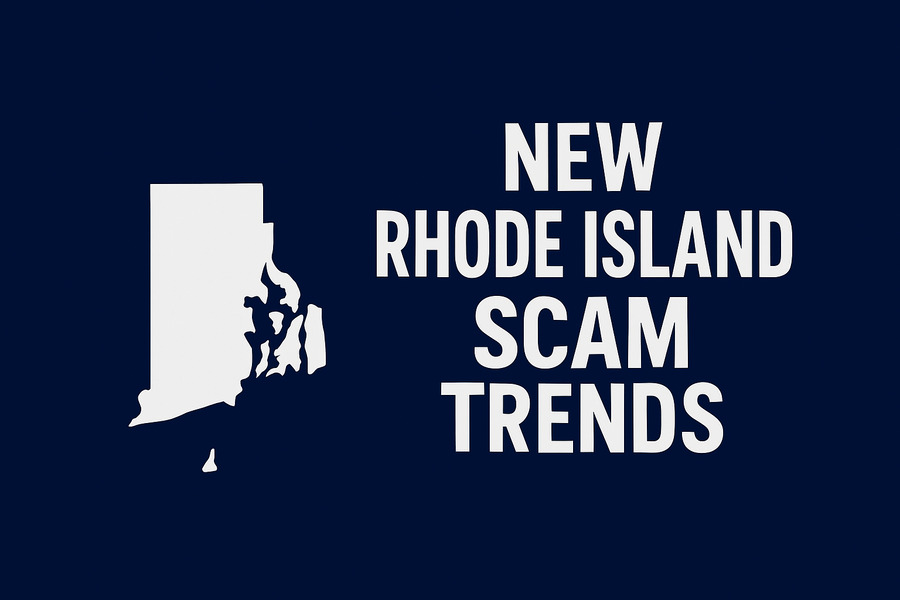
Rhode Island's Fraud Reality in 2024
Rhode Islanders lost big to scams but still stayed about average in 2024 as the state ranked 28th nationwide for fraud and other consumer reports to the FTC’s Consumer Sentinel Network. Residents filed 11,776 complaints, with total losses topping over $20 million and a median hit of $350 each. For a small state, that’s a big bite out of local wallets. The biggest culprit? Identity theft. Source: Federal Trade Commission
Rhode Island’s Consumer Protection in Action
Attorney General Peter F. Neronha ramped up enforcement against deceptive business practices in 2024. His office filed suit against ARBC, a national property-management company accused of charging illegal rental-application fees and discriminating against tenants with disabilities in several Rhode Island communities. The case seeks restitution for renters and penalties to stop predatory housing practices across the state. Source: Rhode Island Office of the Attorney General
Fraud in the Ocean State doesn’t always look like a scam until it’s too late. The Rhode Island Attorney General’s Consumer Protection Unit posts real-time scam alerts and advice to help residents spot trouble before it drains their accounts — empowering communities to recognize red flags, share warnings, and stay one step ahead of evolving schemes statewide and even helping the nation.
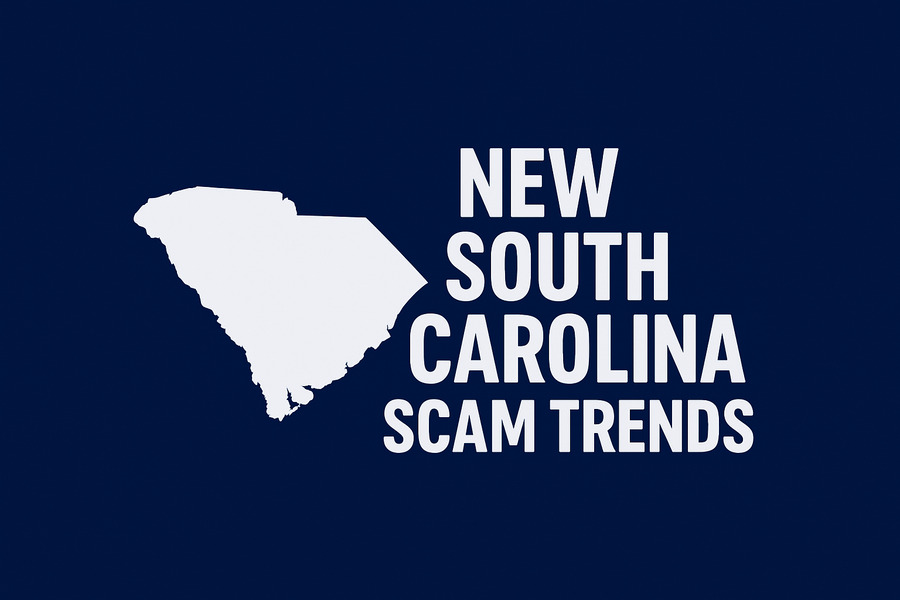
South Carolina's Fraud Reality in 2024
In 2024, South Carolina ranked 7th in the nation for fraud and related reports and filed over 80,000 complaints with the Federal Trade Commission. Overall, South Carolina reported a notable $137 million in losses. The median loss was $450. Those numbers show how fraud is chipping away at households across the state. Source: FTC Consumer Sentinel Network Data Book 2024
South Carolina’s Consumer Protection in Action
State officials united in a joint effort called Operation Border War that uncovered schemes using fake beneficiary numbers to file false Medicaid claims. In all, eight people have been charged and accused of siphoning more than $21 million from South Carolina’s state and federal programs, a staggering figure that investigators say only scratches the surface of the fraud. The multi-jurisdictional partnerships were key to tracing the money trail. Prosecutors also reminded the public that an indictment is only an allegation and that all defendants are presumed innocent until proven guilty in court. Source: South Carolina Attorney General
When fraud steals from a household or a public program, you feel it at the dinner table and at the clinic. South Carolinians know that protecting the community means calling out scams, backing victims, and making sure scammers can’t turn someone’s hardship into their profit.
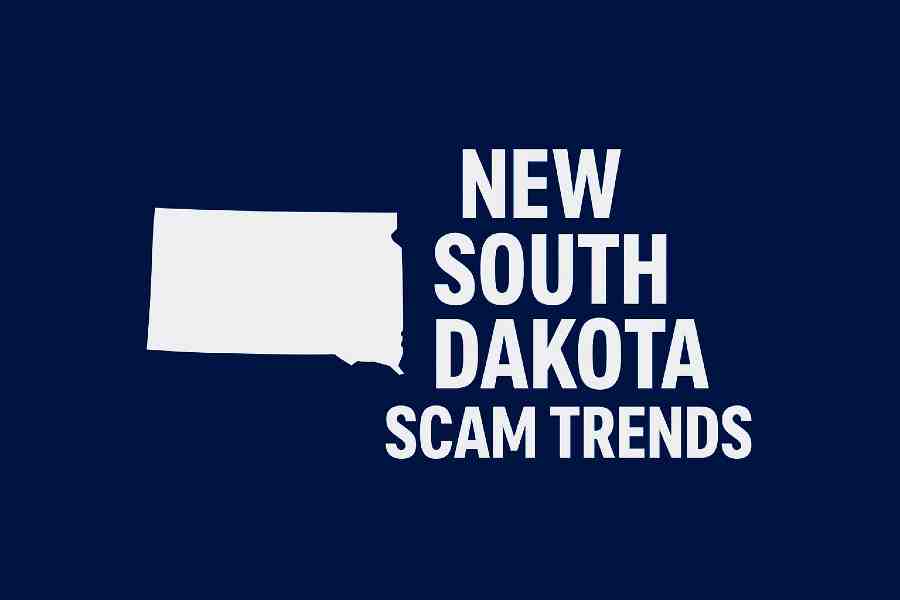
South Dakota's Fraud Reality in 2024
South Dakota did very well in 2024, ranking 50th in the nation for fraud and other reports, the lowest ranking in the country. Residents filed 6,081 fraud and related reports with the Federal Trade Commission, with total losses of about $20.4 million and a median loss per case of $400. Imposter scams made up roughly 20 percent of those complaints, making them the top fraud category in the state. While the overall numbers put South Dakota below all other states, the steady flow of reports shows scammers are still finding ways to reach residents.
Source: FTC Consumer Sentinel Network Data Book 2024
South Dakota’s Consumer Protection in Action
The South Dakota Public Utilities Division has warned residents about a growing scam. Scammers will call and fake “utility shut-off” notices. This tactic involves scammers sending calls pretending to be from local utility companies and threatening immediate service interruption if payment isn’t made over a provided link. The Attorney General’s office emphasized that real utility companies do not demand payment this way and urged anyone who gets one of these messages to check with their utility provider directly rather than follow a link. Source: South Dakota Public Utilities Division
Out in South Dakota, whether you’re in Pierre or a small ranching town, scams that mimic something as routine as a utility bill can trip people up. Thankfully, South Dakotans tend to notice when something doesn’t fit the norm.
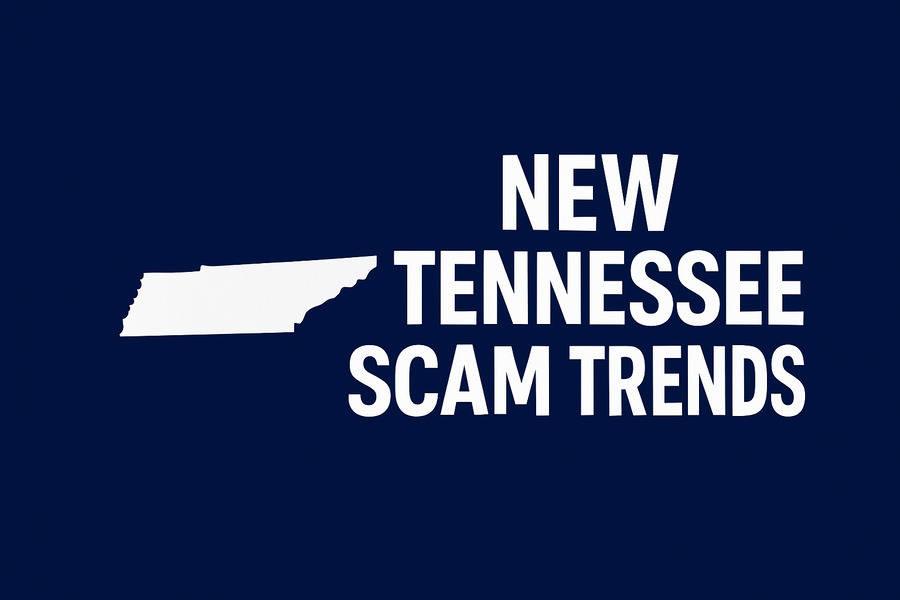
Tennessee's Fraud Reality in 2024
Tennessee ranked 21st in the nation for fraud and other reports in 2024, placing it well above the national midpoint shining a spotlight on the escalating seriousness of the issue in the state. Residents filed just over 83,000 reports with the Federal Trade Commission during the year, and the losses added up to about $157 million. The median reported loss was $400, which shows that many cases involved smaller individual sums but also that a large number of Tennesseans experienced major financial harm. Source: Federal Trade Commission
Tennessee’s Consumer Protection in Action
One of the more recent fraud cases in Tennessee involved phishing texts disguised as EZ Pass toll notices, a scam that spread quickly across the state. Seniors were easy victims of this scam tricking them into giving up personal and financial information. The Attorney General urged anyone who receives such texts to report them and, to be extra cautious, delete them immediately. By highlighting this case, the office demonstrates how tech-based fraud is evolving in Tennessee and highlights the particular vulnerability of older adults. Source: Tennessee Attorney General
In a state with such varied landscapes and populations, combined efforts show how Tennesseans themselves are crucial in identifying, reporting, and stopping scams before they can cause greater harm.
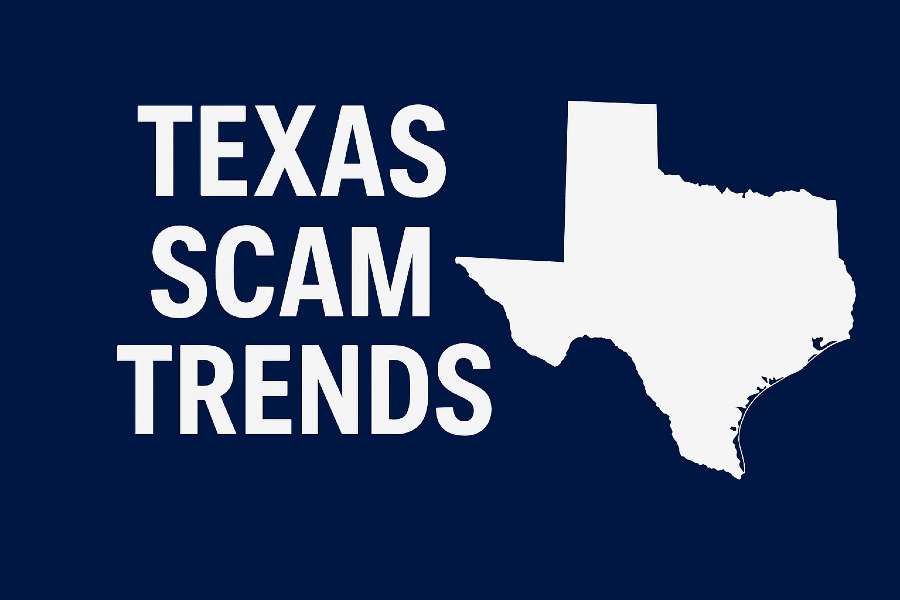
Texas Fraud Reality in 2024
Texas often faces natural disasters, and on top of that, scams only make life harder for residents. In 2024, people in the state lost almost $900 million to fraud, with an average of $500 per victim. Texans also filed 462,667 fraud complaints, the sixth highest total in the country. Source: FTC Consumer Sentinel Network Data Book 2024
Texas Consumer Protection in Action
Texas officials have a reputation for treating consumer protection with the same urgency as they do climate disasters. Attorney General Ken Paxton recently filed a lawsuit against Allstate and its subsidiary Arity, saying the companies secretly gathered and sold driving data from more than 45 million Americans, including many in Texas. The suit also claims Allstate slipped tracking software into popular mobile apps without asking users for permission. The case marks a major step for data privacy and is helping to set the stage, along with other states' efforts, for tougher privacy protections at the state level. Source: Reuters
Texas is not just big in size; it's also booming with one of the fastest-growing populations in the nation and attracts both legitimate investment and fraudulent schemes. Its size, diversity, and economic growth create ideal conditions for scams to spread quickly. The Allstate lawsuit shows how Texas is moving beyond traditional fraud cases to confront the modern threat of unauthorized data collection and other digital-age tactics used against consumers.
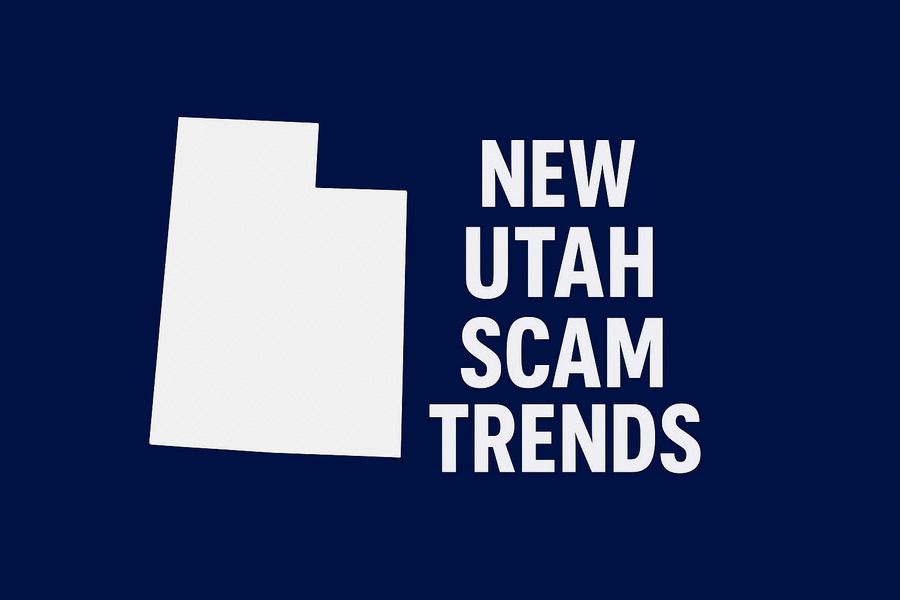
Utah's Fraud Reality in 2024
.
In 2024 Utahns filed over 30,000 fraud and related reports with the FTC’s Consumer Sentinel Network, reporting over $113 million in total losses and a median loss of $550 per incident. Utah ranked 38th out of the 50 states, showing that fraud is relatively low there. Source: Federal Trade Commission
Utah’s Consumer Protection in Action
Utah’s government agencies have been assertive in pursuing large fraud schemes. In a recent landmark case, a judge ordered defendants involved in a nationwide "real estate workshop" scheme to pay millions in restitution, fines, and penalties. The Division proved that the defendants pressured attendees into purchasing expensive training packages, which left many individuals in significant debt, with no delivery of the promised services. The action both returned money to harmed consumers and permanently barred the defendants from selling business-coaching services. A high-profile enforcement message that Utah will use civil remedies to deter large-scale consumer fraud. Source: Utah Department of Commerce
Utah's FTC statistics illustrate the high cost of fraud, despite the state performing better at combating it than many others. The state’s strong enforcement actions demonstrate its willingness to face and fight large, organized schemes. But regulation and restitution only go so far. For everyday Utahns, the most effective defense is awareness.
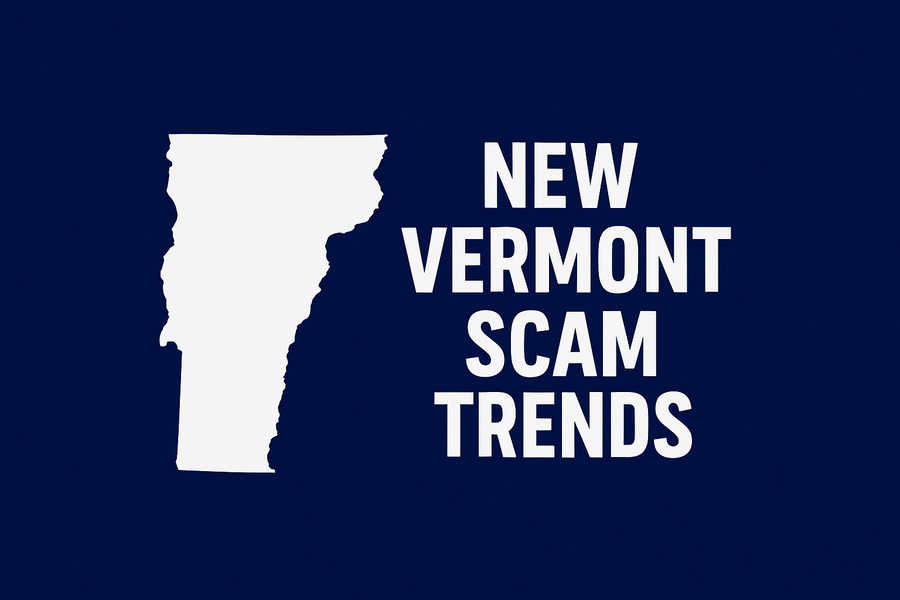
Vermont's Fraud Reality in 2024
.
Vermont ranked 36th in the nation for fraud and other reports in 2024. That year, Vermonters filed 5,860 fraud & other reports with the FTC, with total reported fraud losses of $10.6 million and a median loss of $285; lower than many states in absolute terms, but still meaningful when spread across households. Imposter scams were reported the most, totaling 24% of all reports. Source: Federal Trade Commission
Vermont’s Consumer Protection in Action
At the state level, Vermont’s Attorney General Consumer Assistance Program (CAP) received and handled 3,533 scam reports in 2024. CAP’s top complaint was the Computer Tech Support scam (645 reports). The AG’s office emphasizes consumer education, runs the VT Scam Alert System (roughly 9,000 signed up), and is integrating scam alerts with the statewide VT-ALERT platform to expand reach; CAP also offers a hotline for reporting and help. Source: UVM Blogs
Vermont’s raw numbers aren’t the largest, but the patterns are familiar: tech-support imposters and identity scams dominate, and small businesses face targeted fraud like fake orders. The FTC’s statewide snapshot plus Vermont’s CAP data makes the case that prevention and quick reporting are the best tools to limit losses.

Virginia’s Fraud Reality in 2024
Close to the East Coast, Virginians know too well how costly scam calls and fraud schemes can be. In 2024 alone, consumers filed 117,836 fraud and other reports, with total losses of $293.7 million and a median loss of $450 per incident. Virginia ranked 16th nationally for fraud and other reports. Federal Trade Commission.
Virginia’s Consumer Protection in Action:
The Attorney General’s office publishes regular scam alerts and practical tips on spotting phone-based fraud and has a consumer protections hotline at 804-786-2042, helping Virginians report and recover from scams.
Their other hotlines:
- Main Line: 804-786-2071
- Victim Notification Program: 1-800-370-0459
- Office of Civil Rights: 804-225-2292
- To report Medicaid fraud: 1-866-486-1971
- To report Medicare fraud: 1-800-HHS-TIPS (TTY: 1-800-377-4950)
Source:
Virginia Office of the Attorney General.
Virginia ranks high compared to other states, fraud is a serious issue for people there. From rural counties to suburban corridors and bustling cities like Richmond and Virginia Beach, scammers are exploiting Virginians' trust. The numbers might not put the Old Dominion State at the very top, but close enough to be a big concern, and scammers haven’t slowed down. They continue to shift their tactics to catch the people of Virginia off guard, often using methods designed to pressure people into acting fast, and unfortunately, they often work.
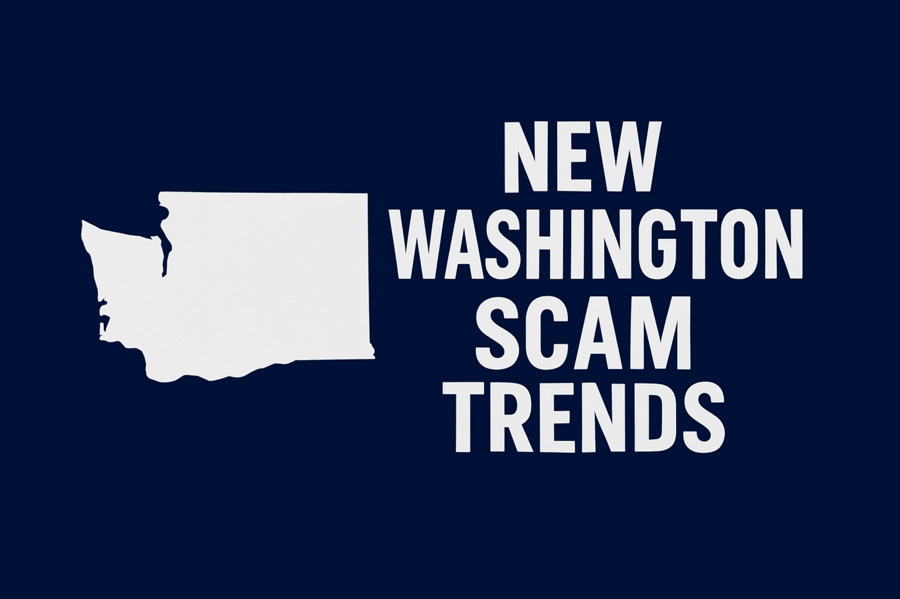
Washington's Fraud Reality in 2024
According to the Federal Trade Commission (FTC) Consumer Sentinel Network Data Book 2024, consumers in Washington filed 87,780 reports in 2024 and lost nearly $300 million to fraud. The state ranked right in the middle at 25th out of the 50 states. The average loss per fraud case was $465, which may be small for some but can be a serious setback for many households. Source: Federal Trade Commission
Washington’s Consumer Protection in Action
The Washington State Attorney General’s Office (AGO) is taking strong action to protect consumers. Recently, the AGO recovered more than $8.2 million in penalties and refunds from a company that sent almost 600,000 misleading solicitations to Washington businesses, pretending to be from the government. Source: Washington Attorney General's Office
Fraud in Washington impacts households directly by draining savings, creating stress, and undermining financial well-being.
Protective Tips:
- Question offers that seem too good to be true.
- Always verify who is asking for your money or personal information by contacting the company or agency directly using an official phone number.
- Use the AGO’s consumer protection resources, including complaint filing and alerts.
- Keep records, such as screenshots or copies of contracts, in case you need to report a scam.
- Stay informed about new scams, including fake government messages or urgent requests for money.
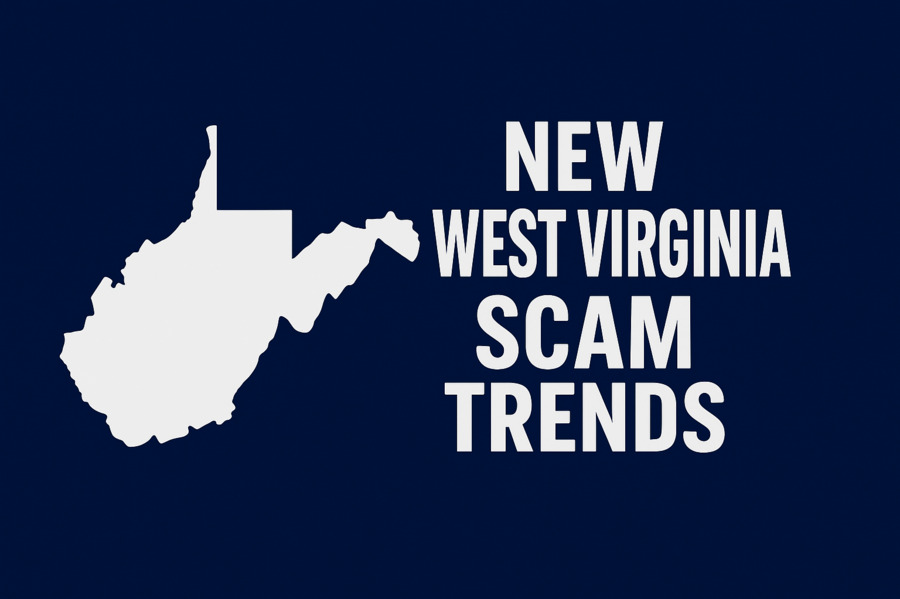
West Virginia's Fraud Reality in 2024
According to the Federal Trade Commission (FTC) Consumer Sentinel Network Data Book 2024, consumers in West Virginia filed almost 15,000 fraud and other reports in 2024, losing $27 million. The state ranked 47th in the nation, with a median loss of $341 per report. These numbers show that while West Virginia experiences fewer fraud cases than many states, the personal impact on victims remains serious. Source:
Federal Trade Commission
West Virginia’s Consumer Protection in Action
The West Virginia Attorney General’s Office continues to fight back against fraud and deceptive business practices. In December 2024, the office reached a $17 million settlement with Pfizer and Ranbaxy over allegations the companies illegally delayed competition, driving up prescription drug costs. The funds will help provide relief to consumers and strengthen state enforcement efforts. The Attorney General’s Office has also expanded outreach campaigns to warn residents about scams targeting seniors and rural communities. Source: WTAP
Fraud continues to affect families across the state, draining savings and causing financial and emotional stress. Staying informed and taking quick action can make a difference.
Emerging Scams in West Virginia:
- Watch for fake calls or texts that appear to come from local police, courts, or utility companies.
- Never send money with cryptocurrency, gift cards, or wire transfers to pay supposed fines or overdue bills.
- Be careful with unexpected messages from family or friends asking for help as scammers often use AI to copy voices or photos.
- Take time to confirm any payment request before sending money or sharing personal details.
- Report scams to the West Virginia Attorney General’s Office to help protect others.
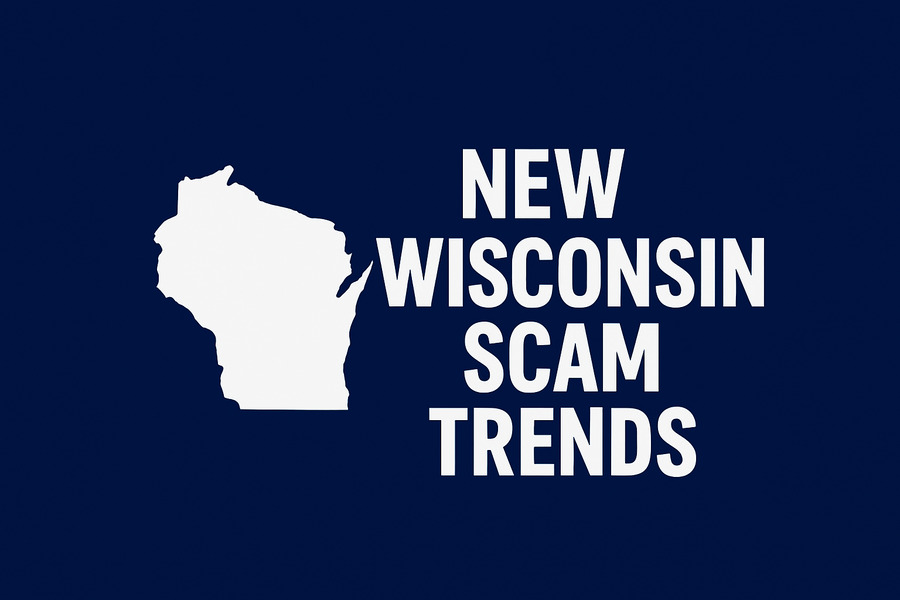
Wisconsin's Fraud Reality in 2024
Wisconsin ranked 35th in the nation for fraud and other reports in 2024. Residents filed 53,520 complaints with the Federal Trade Commission, totaling about $106 million in reported losses with a median hit of $357. Imposter scams led the pack at roughly 16 percent of all cases, a reminder that while Wisconsin isn’t at the top of the fraud charts, scammers are still finding plenty of ways to sneak into people’s lives. Source: Federal Trade Commission
Wisconsin’s Consumer Protection in Action
To meet evolving threats, Wisconsin has launched targeted tools aimed at spotting scams. The Department of Financial Institutions recently rolled out an investment scam tracker that publishes consumer-reported investment and crypto fraud schemes, helps people search by company or keyword, and flags patterns regulators are seeing in financial grooming and “investment” scams. The tracker is designed to make it harder for scammers to reuse the same scripts and sites against new victims and to give investigators more visibility into how these schemes move and change. Source: DFI
Fraud in Wisconsin often hides inside everyday routines, so spotting it usually depends on ordinary people recognizing something off. Whether you live in Wisconsin or not, staying aware of the scam alerts and using tools local to your state, like Wisconsin’s DFI tracker, helps protect both individual wallets and the broader economy
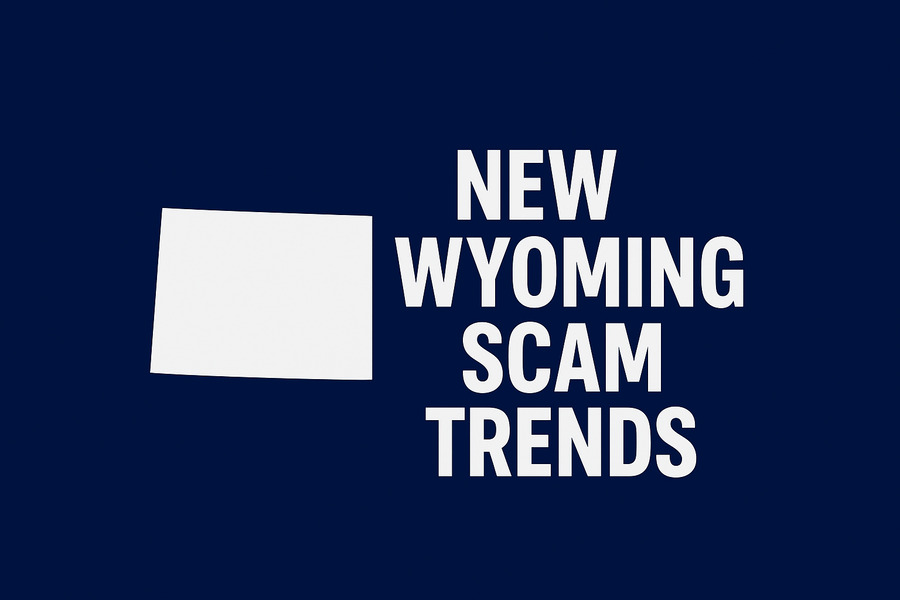
Wyoming's Fraud Reality in 2024
Wyoming did well in 2024, ranking 40th in the nation for fraud and other reports. Residents filed 5,212 fraud and related complaints with the Federal Trade Commission that year, with reported losses of just over $20 million. The median loss was $600, and imposter scams were the largest category at 19 percent of all complaints. Source: FTC Consumer Sentinel Network Data Book 2024
Wyoming’s Consumer Protection in Action
One of the scams Wyoming officials have been warning about is toll-payment phishing, where texts or emails tell residents they owe money for driving on state toll roads, even though Wyoming doesn’t have any. These fake notices push people to click links or share payment details, using urgency to pressure them into quick action. The Wyoming Department of Transportation has shared examples of these messages and urged residents to delete them and report suspicious texts so others don’t get caught. Source: Wyoming Department of Transportation
When a scam doesn’t even line up with the facts on the ground, like tolls in a toll-free state, spotting it gets a little easier. By talking about these cases openly, Wyoming residents can turn the state’s small size and strong word-of-mouth into a real defense against fraud.